7800 XT vs 6800 XT: is AMD's latest midrange card worth the upgrade?
Who wins the battle between the 7800 XT vs 6800 XT?
Sign up for breaking news, reviews, opinion, top tech deals, and more.
You are now subscribed
Your newsletter sign-up was successful
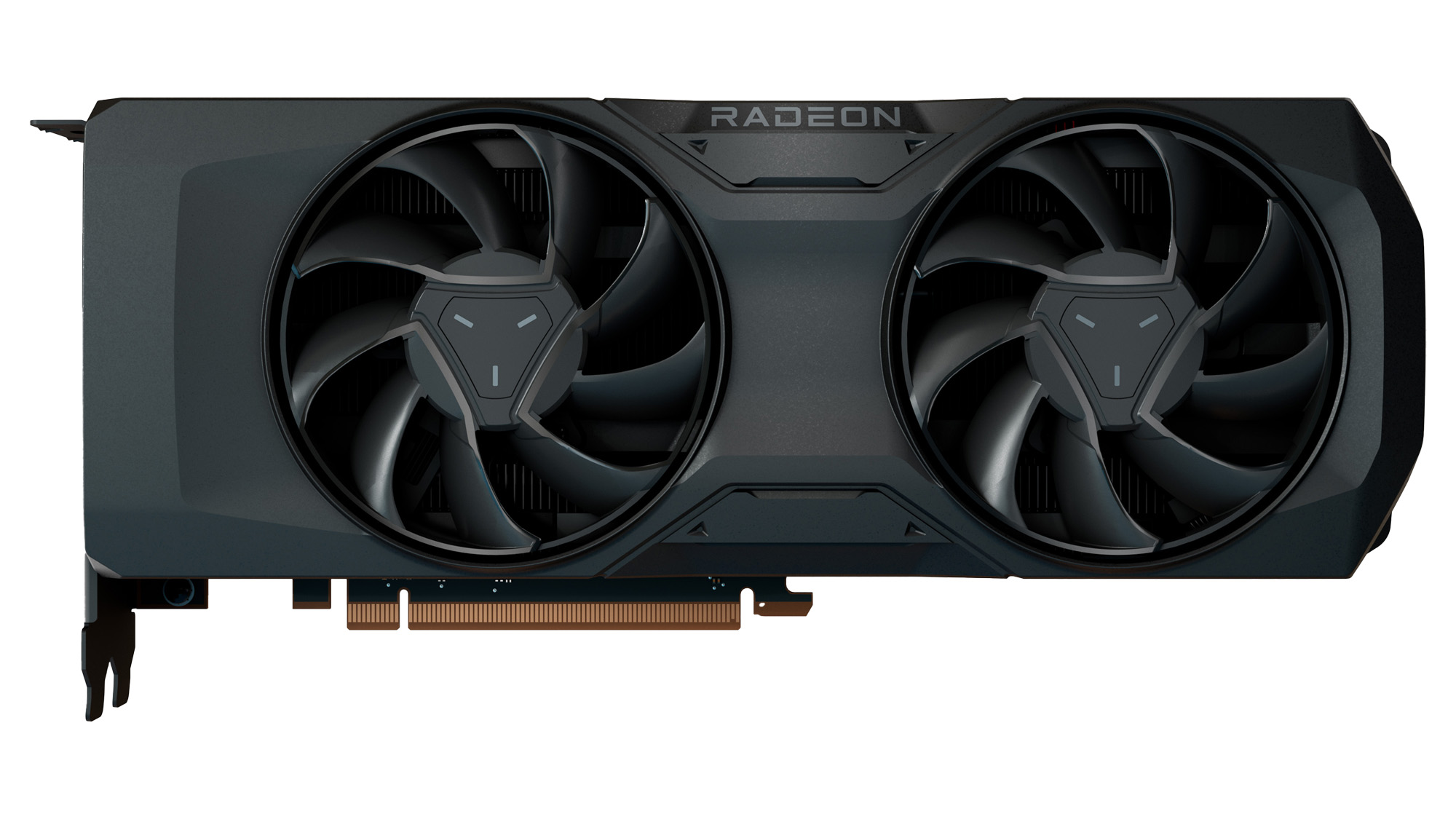
Shaders: 3,840
Ray Processors: 60
AI Processors: 120
Boost Clock: 2,430 MHz
VRAM: 16GB GDDR6 @ 19.4 Gbps effective
TGP: 263W
The AMD Radeon RX 7800 XT is going to be a fantastic graphics card for a lot of gamers out there who don't have the cash to shell out for Nvidia's much more expensive rival offering. Overall, it battles the RTX 4070 to a draw, but its performance is only marginally better than the RX 6800 XT
Pros
- Better rasterization than RTX 4070
- Improved ray tracing
- Much cheaper than rival
Cons
- Only marginally better than RX 6800 XT
- Power hungry
- Lags Nvidia in ray tracing
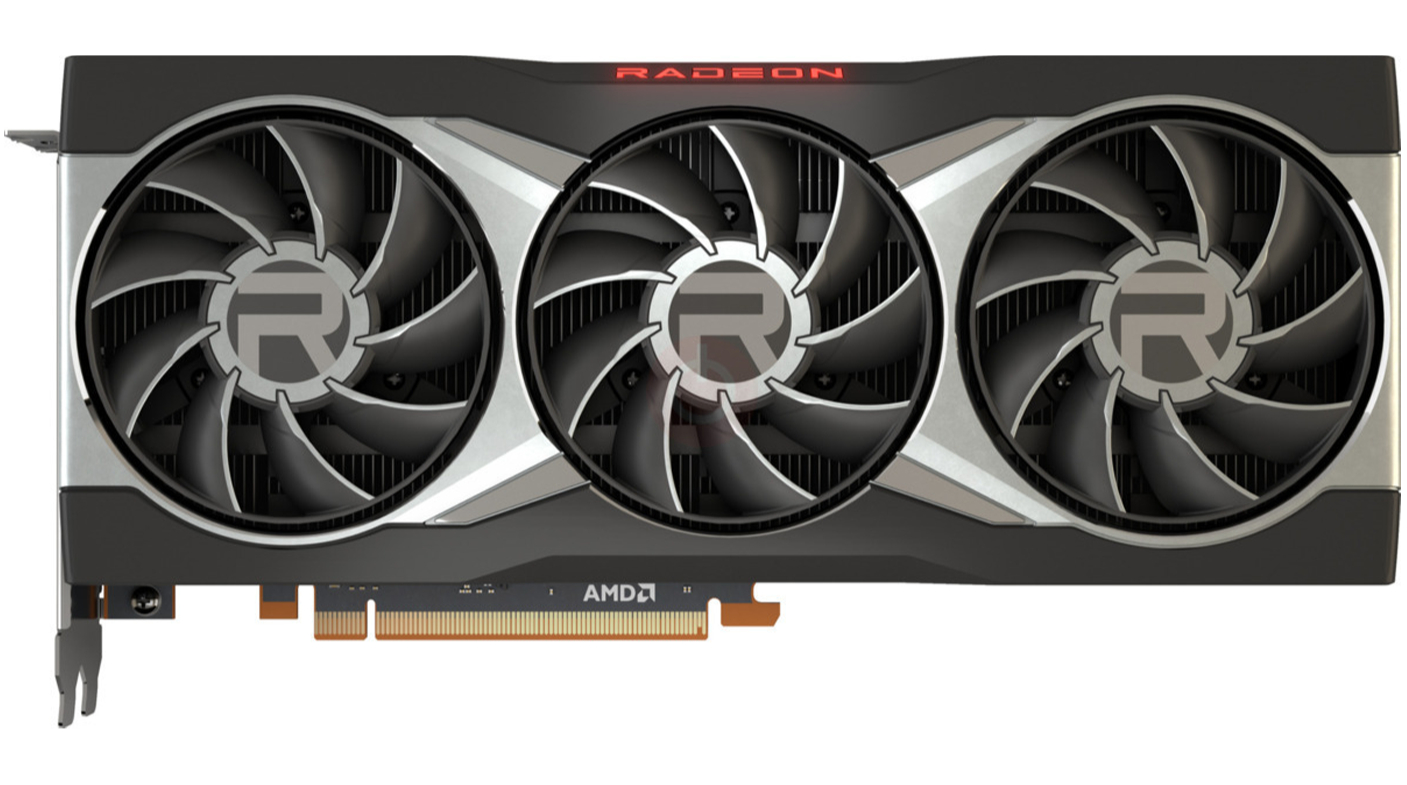
Shaders: 4,608
Ray processors: 72
AI Processors: N/A
Boost Clock: 2,000 MHz
VRAM: 16GB GDDR6 @ 16 Gbps effective
TGP: 300W
The AMD Radeon RX 6800 XT is AMD's first graphics card in years that actually challenges Nvidia at the high-end. However, the performance here doesn't knock Nvidia off its throne, especially in modern DX12 games.
Pros
- Ray tracing for AMD
- Meaningful challenge to Nvidia
- Strong DX11 performance
- Effective cooler
Cons
- Doesn't dethrone Nvidia
- Disappointing ray tracing performance
- Divisive card design
7800 XT vs 6800 XT: AMD's midrange offerings put to the test
With the release of AMD's latest midrange graphics cards, there's a lot of interest among gamers to see how the RX 7800 XT vs 6800 XT stack up against each other.
Is the AMD Radeon RX 7800 XT worth the upgrade if you already have the AMD Radeon RX 6800 XT? What if you have an older card and you're hoping to build the best gaming PC you can for your money and both of these cards fit within your budget?
Ultimately, which is the best graphics card for your needs and budget between AMD's latest midrange card and its predecessor?
Fortunately, I've extensively tested both of these cards using the most recent AMD driver and the latest benchmarking tools and the best PC games and pulled together a whole lot of data about these two cards. With that data in hand, I'm here to share everything I've got with you to help settle the debate about which is the best AMD graphics card for midrange buyers.
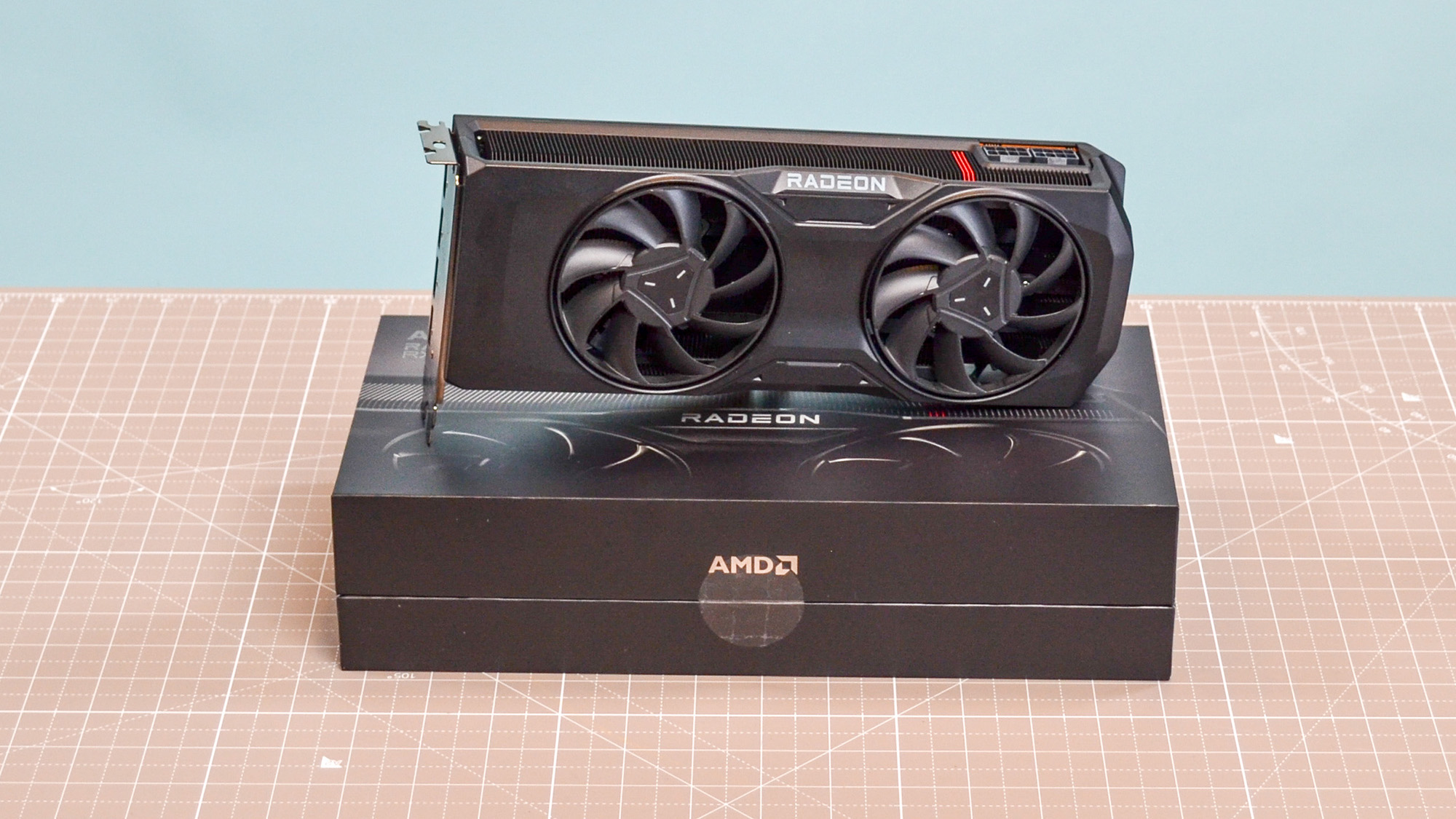
7800 XT vs 6800 XT: Price
In terms of price, the RX 7800 XT has a retail MSRP of $499.99, versus the launch MSRP of the RX 6800 XT of $649.99, giving the RX 7800 XT a distinct advantage here on price.
But the RX 6800 XT has been on the market for a while now, so surely the price has dropped considerably, right?
Having done a quick scan of the prices for the RX 6800 XT on Amazon and Newegg, some are still selling for more than the RX 7800 XT's MSRP, and as these cards become more scarce, supply and demand might put upward pressure on these prices.
Sign up for breaking news, reviews, opinion, top tech deals, and more.
The RX 7800 XT, meanwhile, has plenty of third-party cards selling at MSRP or at roughly the same price as the RX 6800 XT, so it's honestly a pretty clear win for the RX 7800 XT.
- Winner: AMD Radeon RX 7800 XT
7800 XT vs 6800 XT: Design
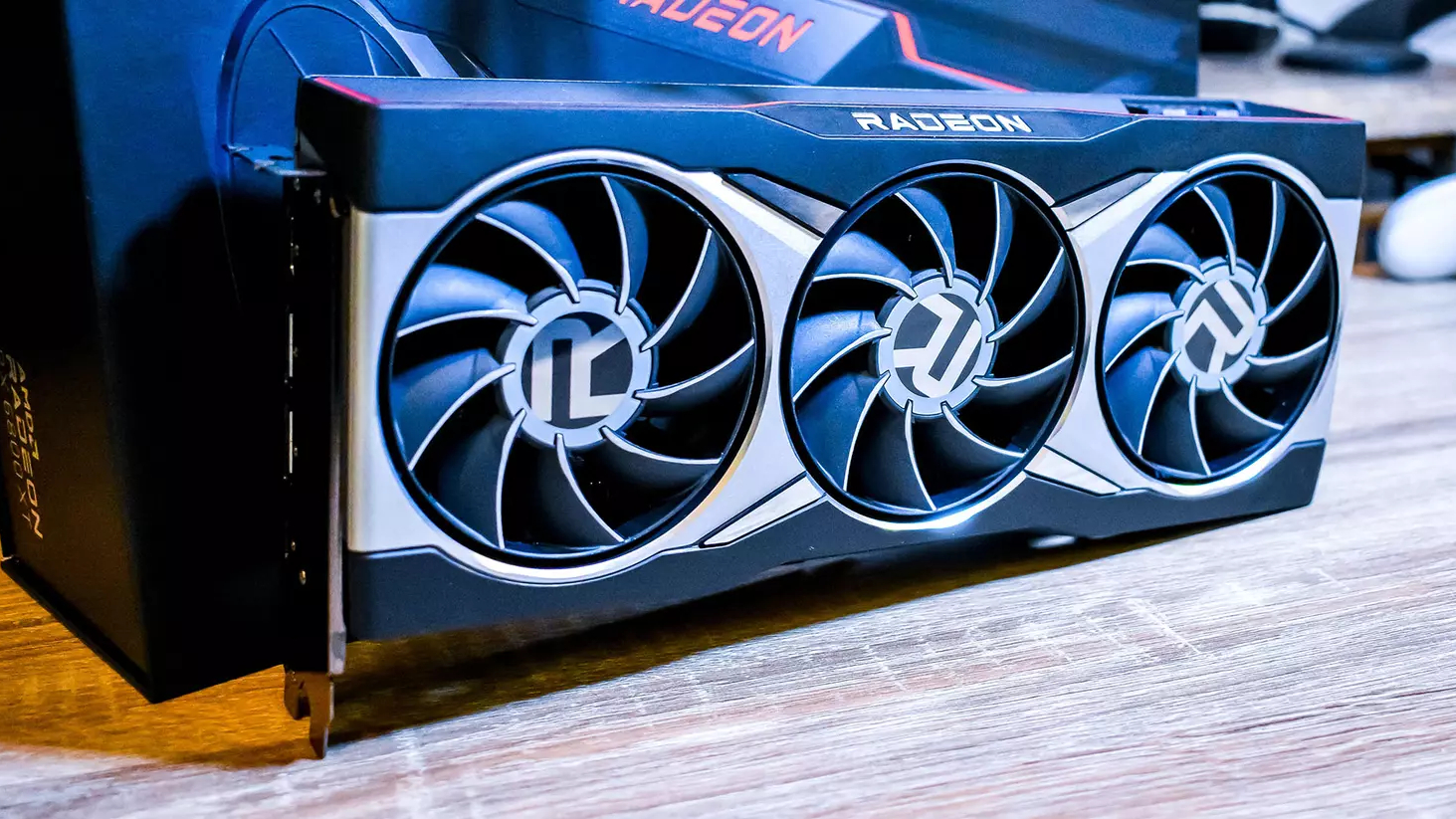
When it comes to design, there won't be much difference between third-party versions of either card if they're from the same manufacturer and brand line.
There are a couple of things to note though. Regardless of whether you go with the reference design or a third-party card, the RX 7800 XT has DisplayPort 2.1 output, meaning that its 8K frame rate is capped at 165, while the RX 6800 XT's DisplayPort 1.4 will only be able to get you 60 fps at 8K, max.
How big of a deal is that right now? There aren't a whole lot of 8K monitors out there right now, so probably not too much, but in a year or two, that is going to change, and gaming at 8K with the 7800 XT will have a distinct advantage.
The AMD RX 7800 XT also has new AI Accelerators, AMD's answer to Nvidia's tensor cores, that allow it to take on more advanced AI workloads like generative image creation that the RX 6800 XT simply can't do. It doesn't have the hardware.
Also, it's worth noting that while the RX 7800 XT does suck up a lot of power (TGP of 263W), the RX 6800 XT needs even more at 300W TGP. The RX 7800 XT, then, is able to do more with less power than its predecessor, and that's well worth noting.
As for the reference designs, the RX 7800 XT looks much better than the reference RX 6800 XT, and while the latter will be hard to find nowadays anyway.
- Winner: AMD Radeon RX 7800 XT
7800 XT vs 6800 XT: Performance
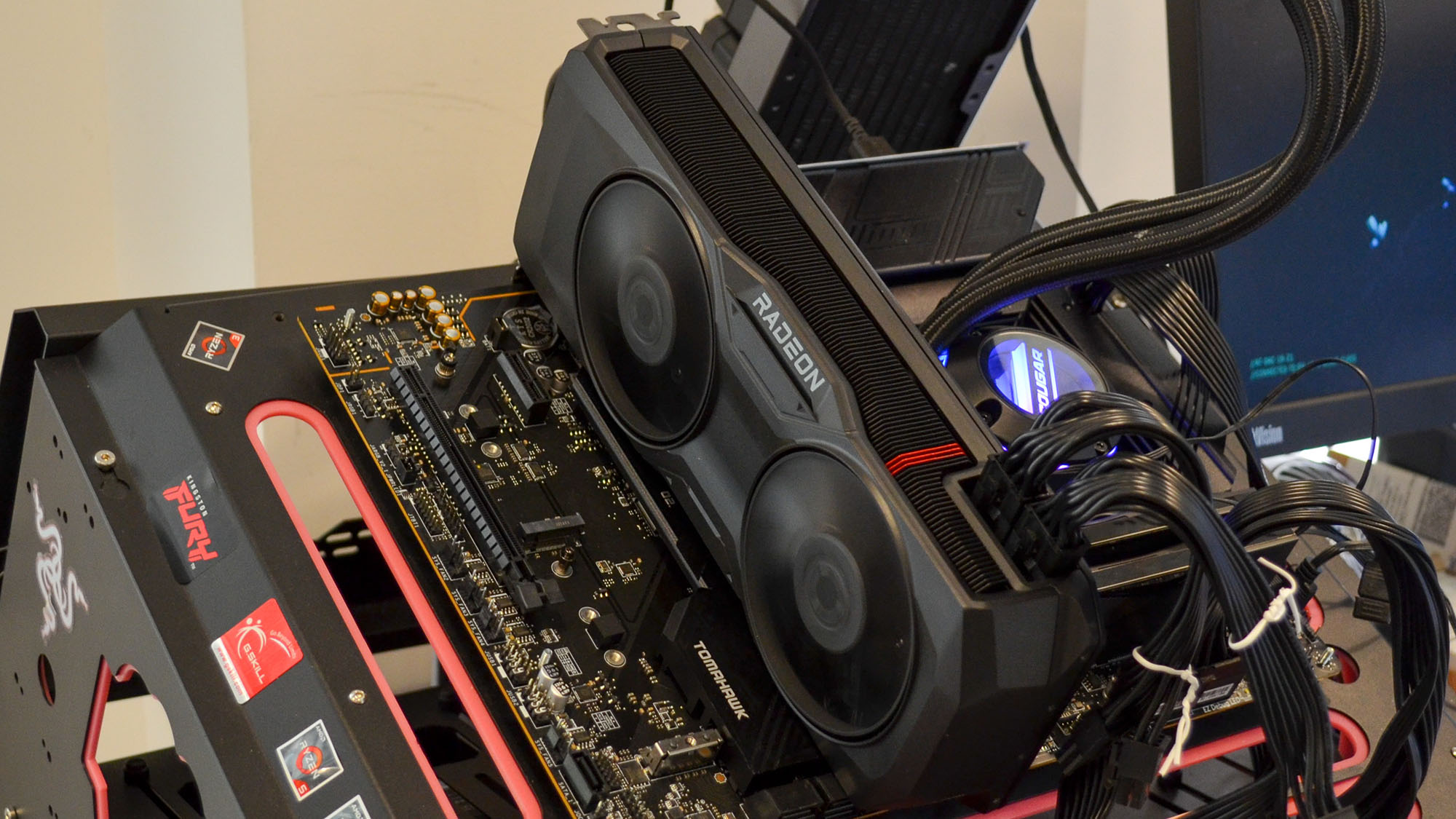
Performance is the one area of the RX 7800 XT that was somewhat of a disappointment for me. While the RX 7800 XT vs RTX 4070 is a much neater win for the RX 7800 XT given that it wasn't really expected to outperform Nvidia's top midrange card, I was looking for a lot more from the RX 7800 XT in terms of gen-on-gen performance, and it's not all that great, to be honest.
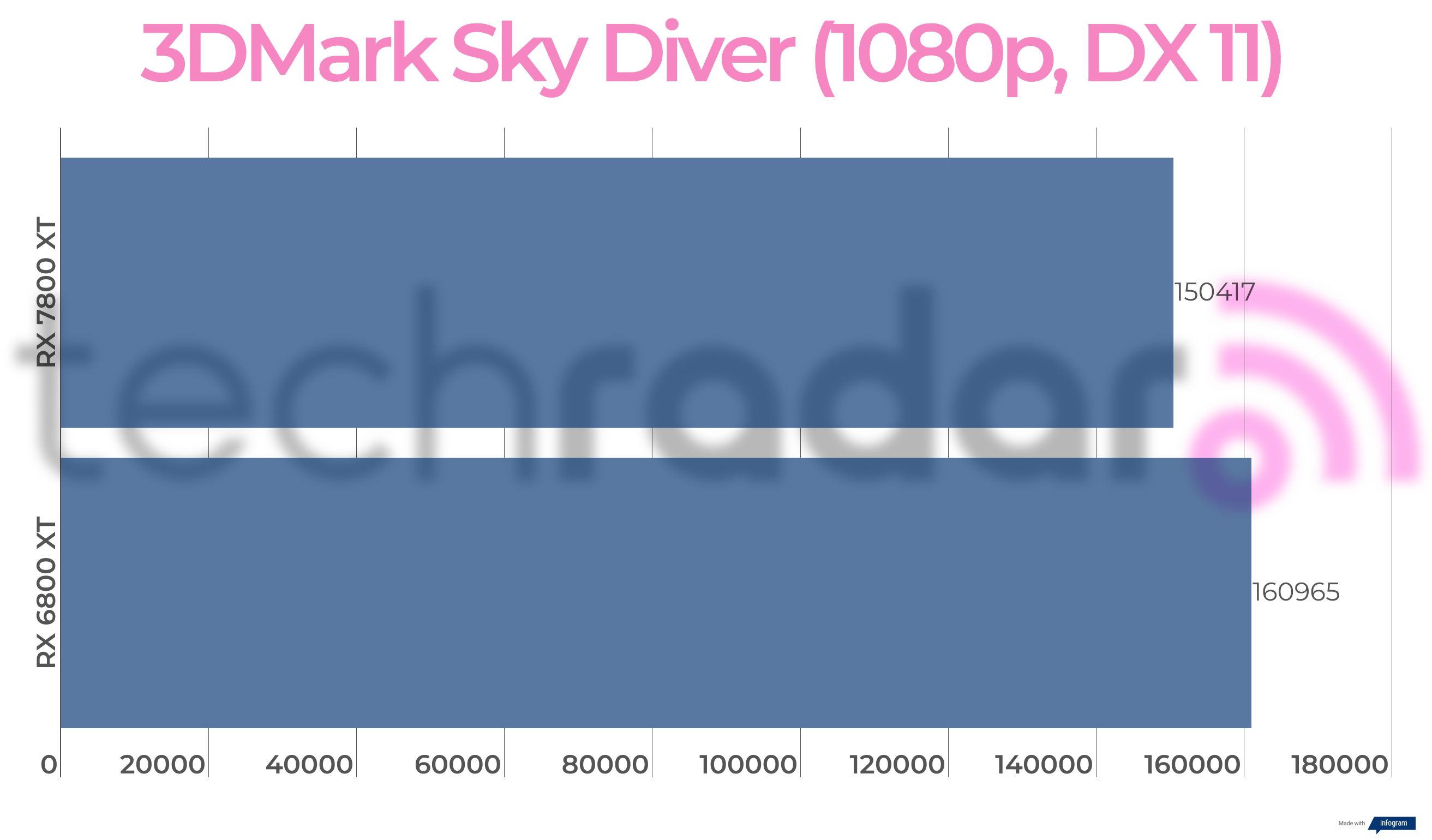
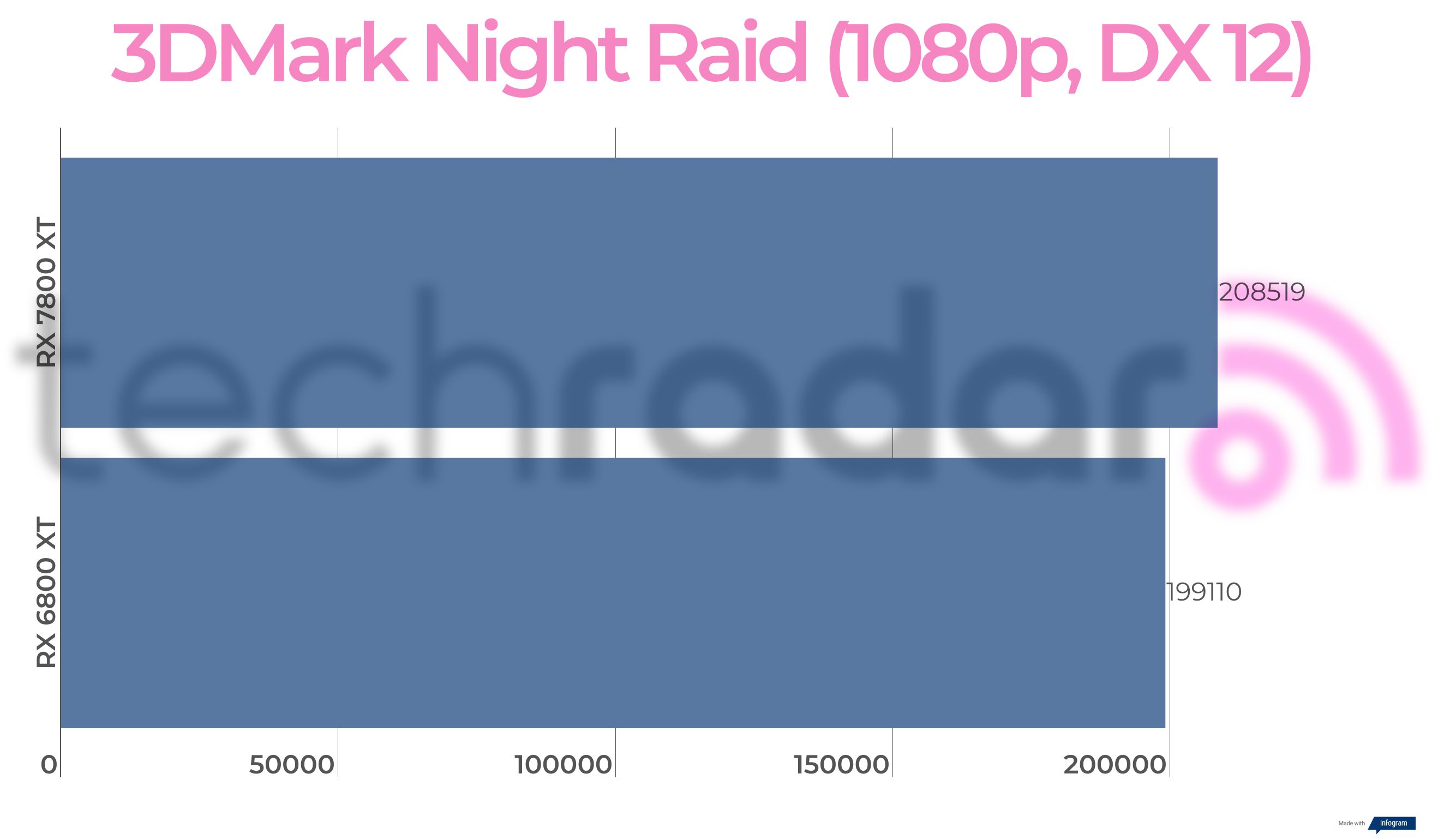
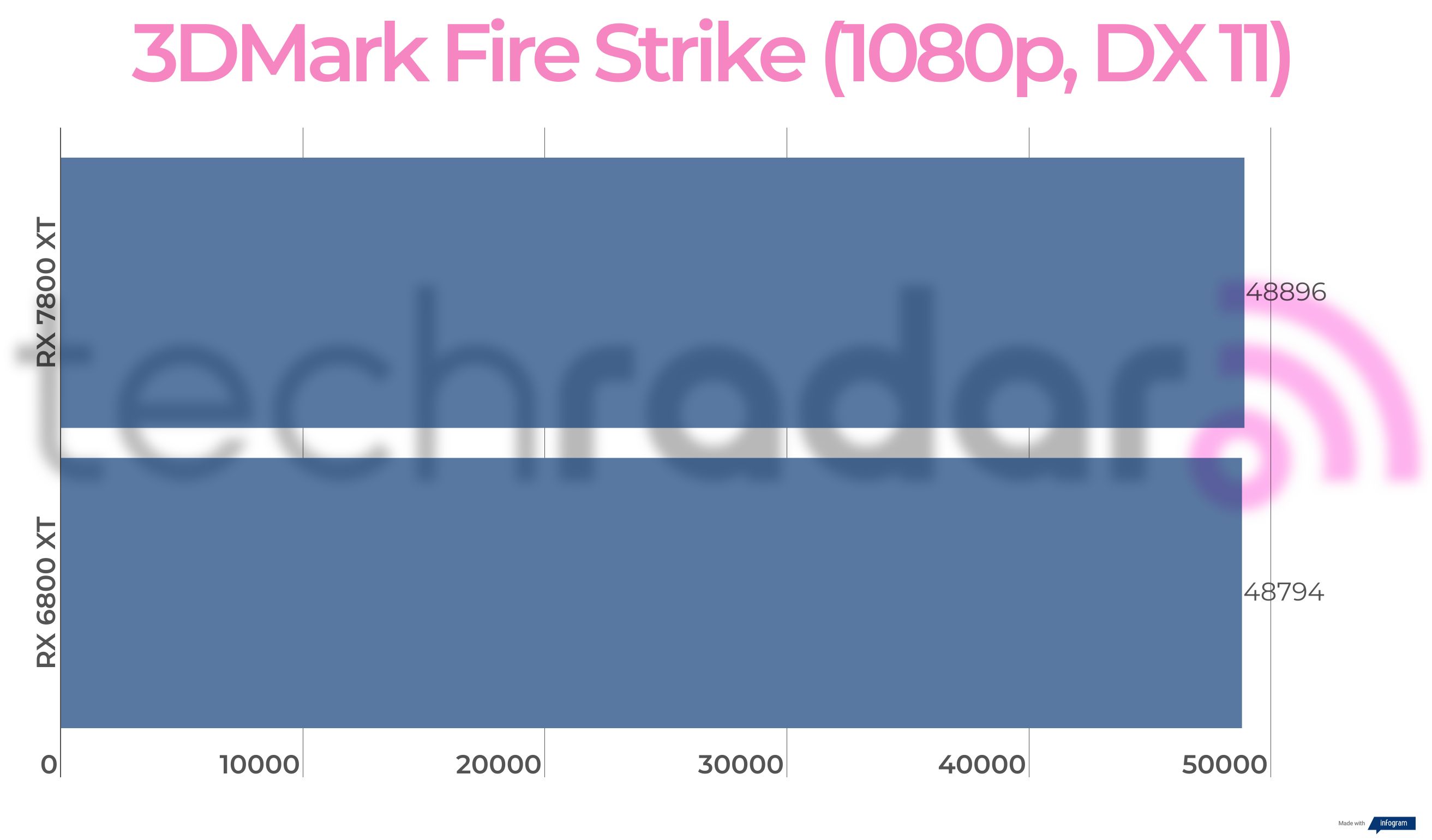
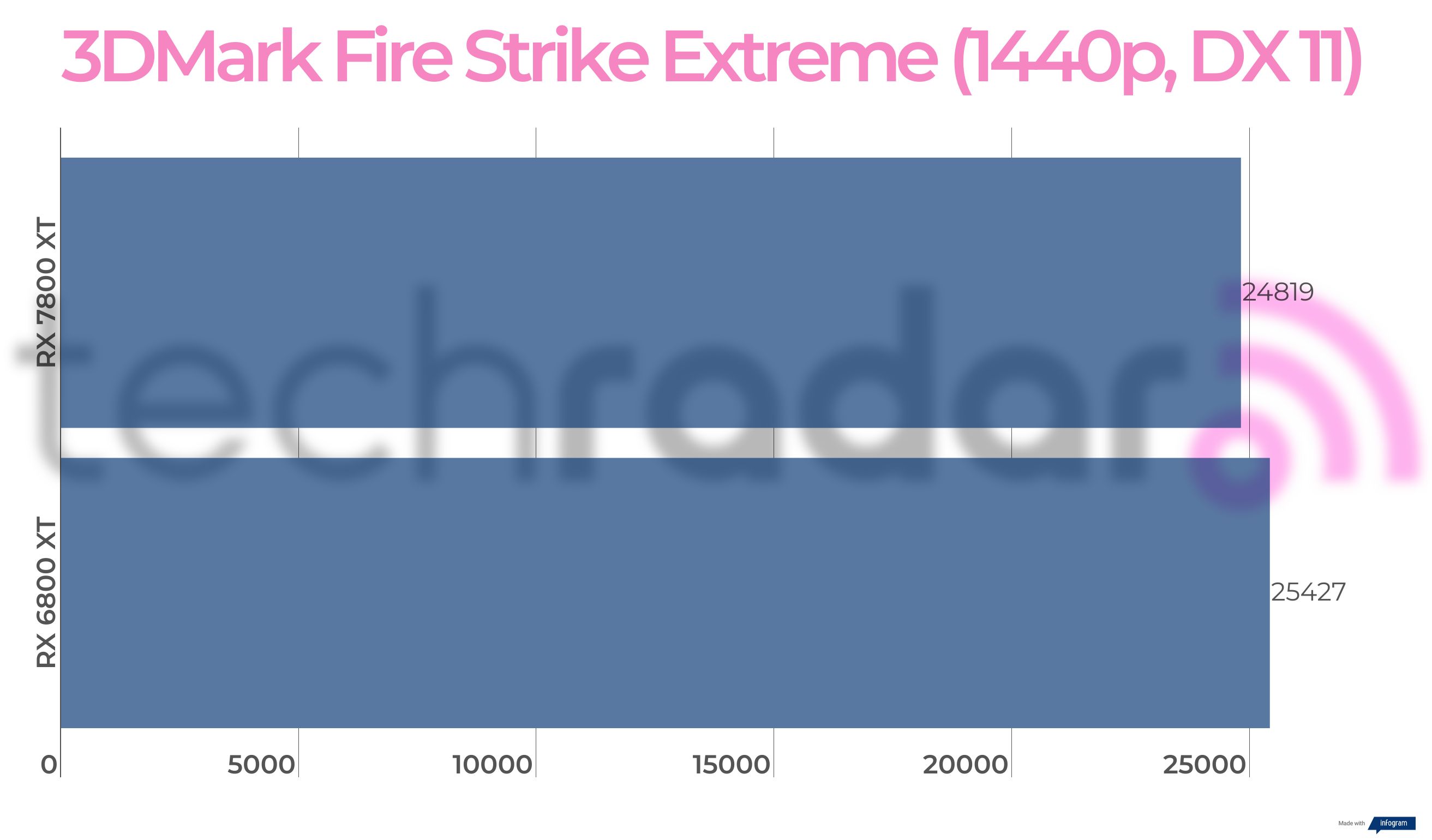
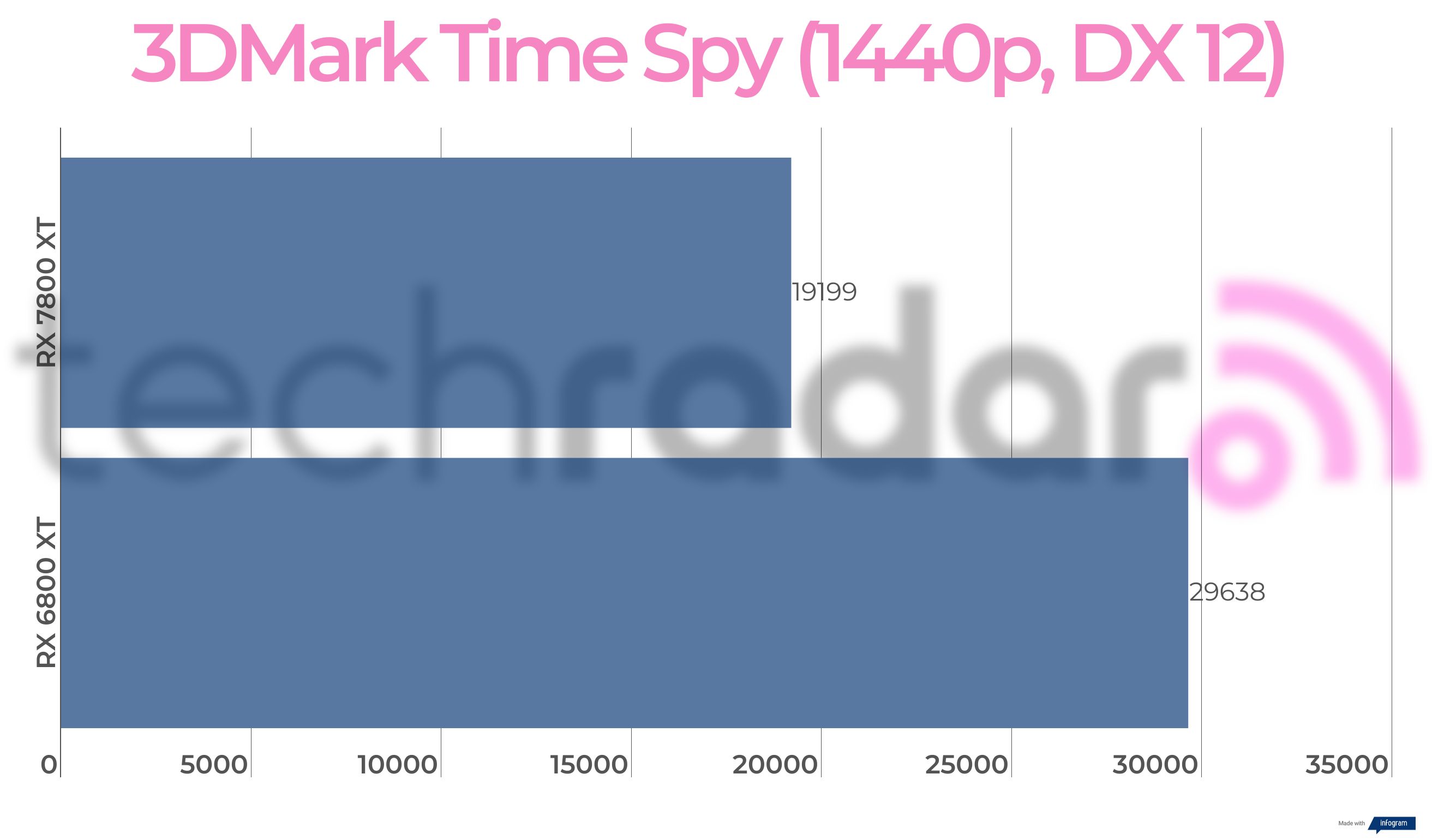
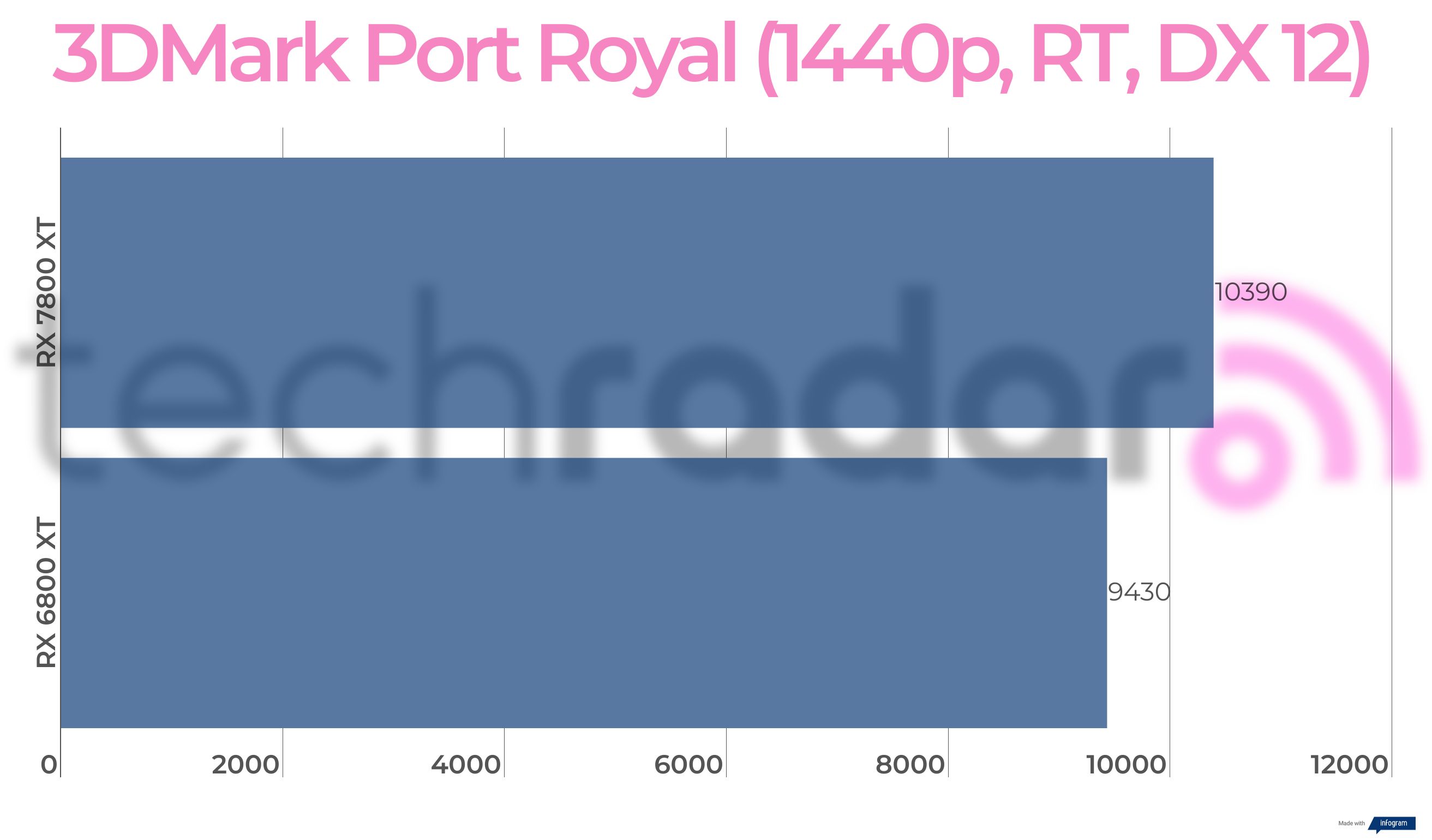
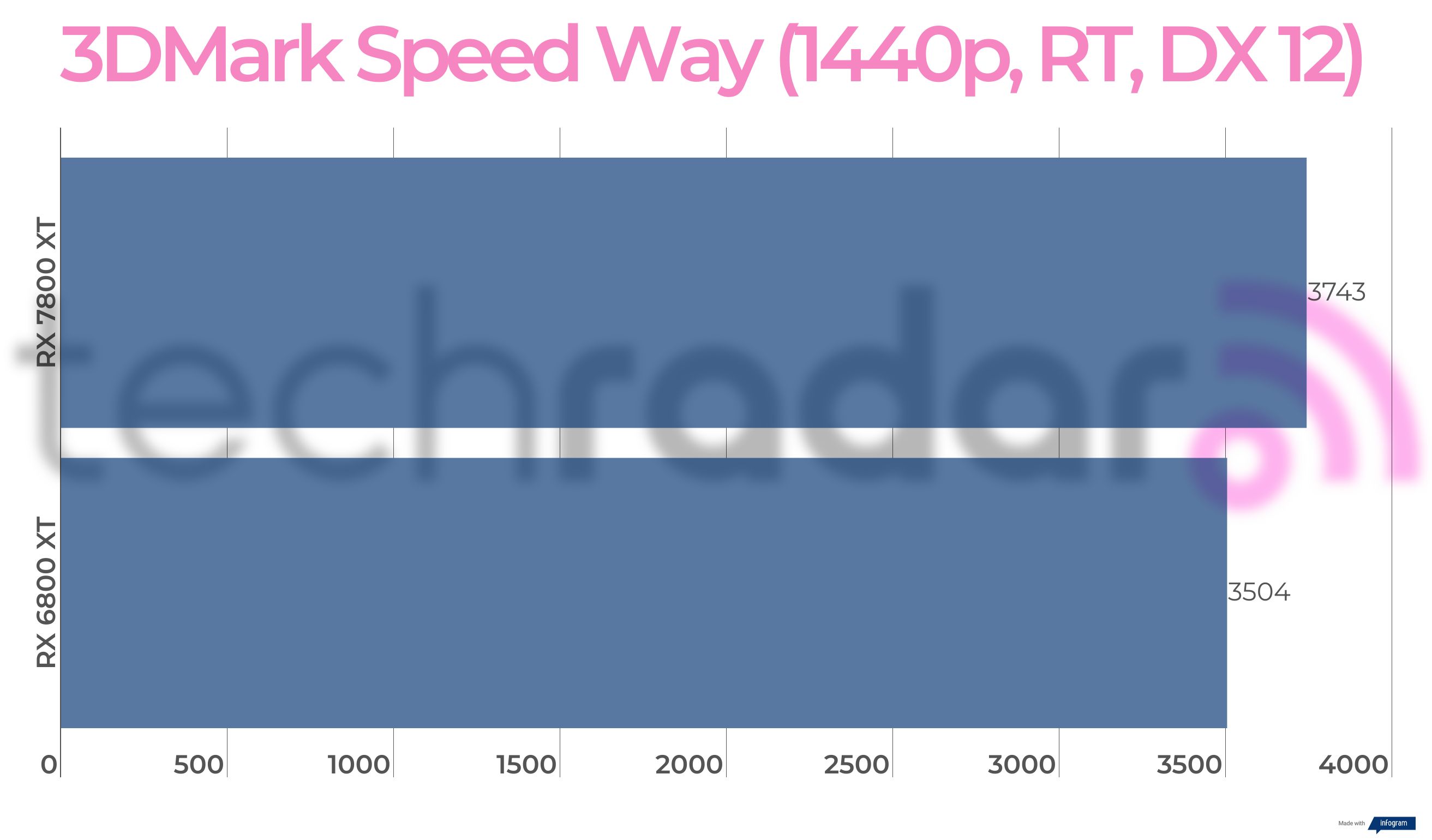
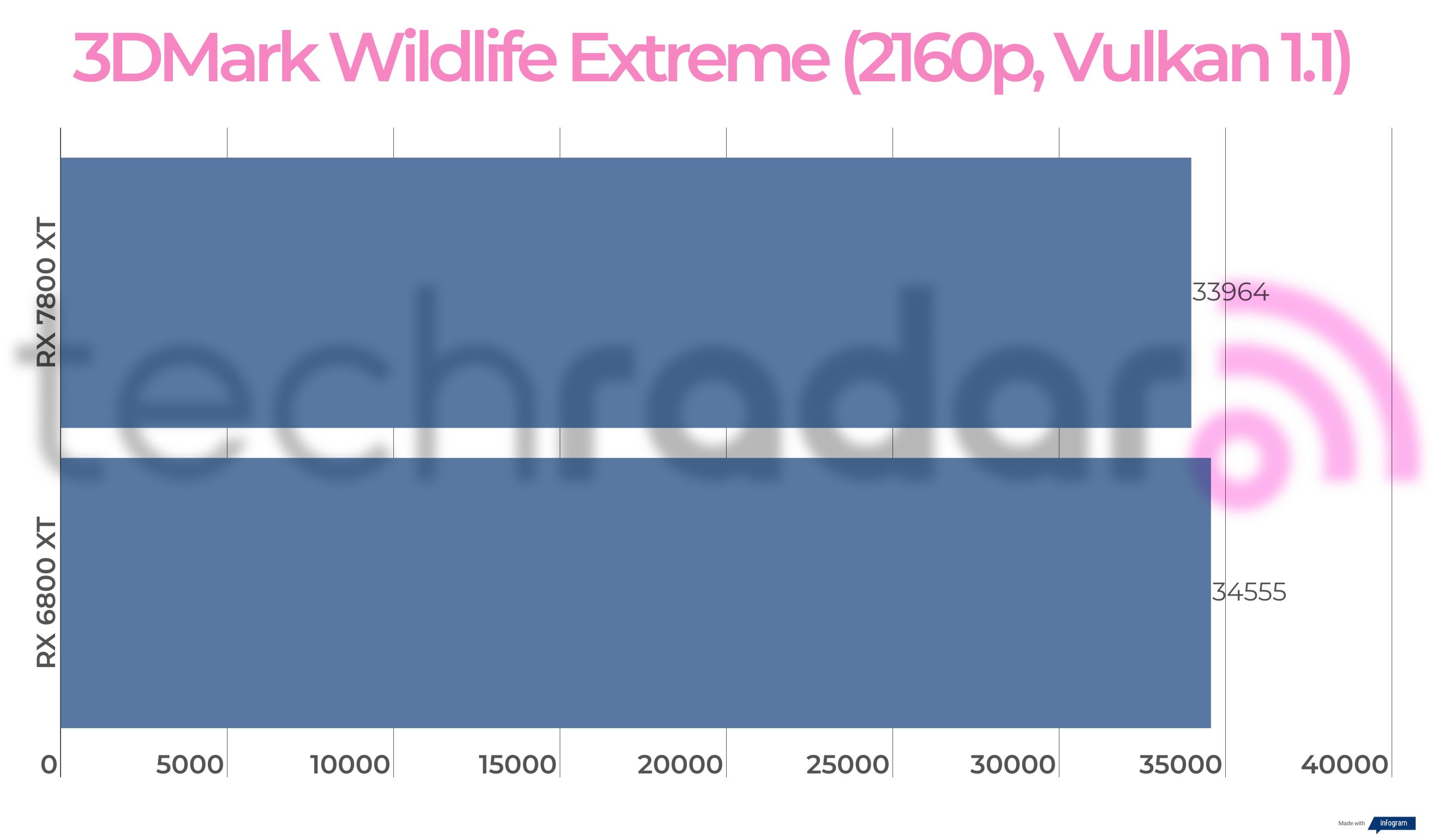
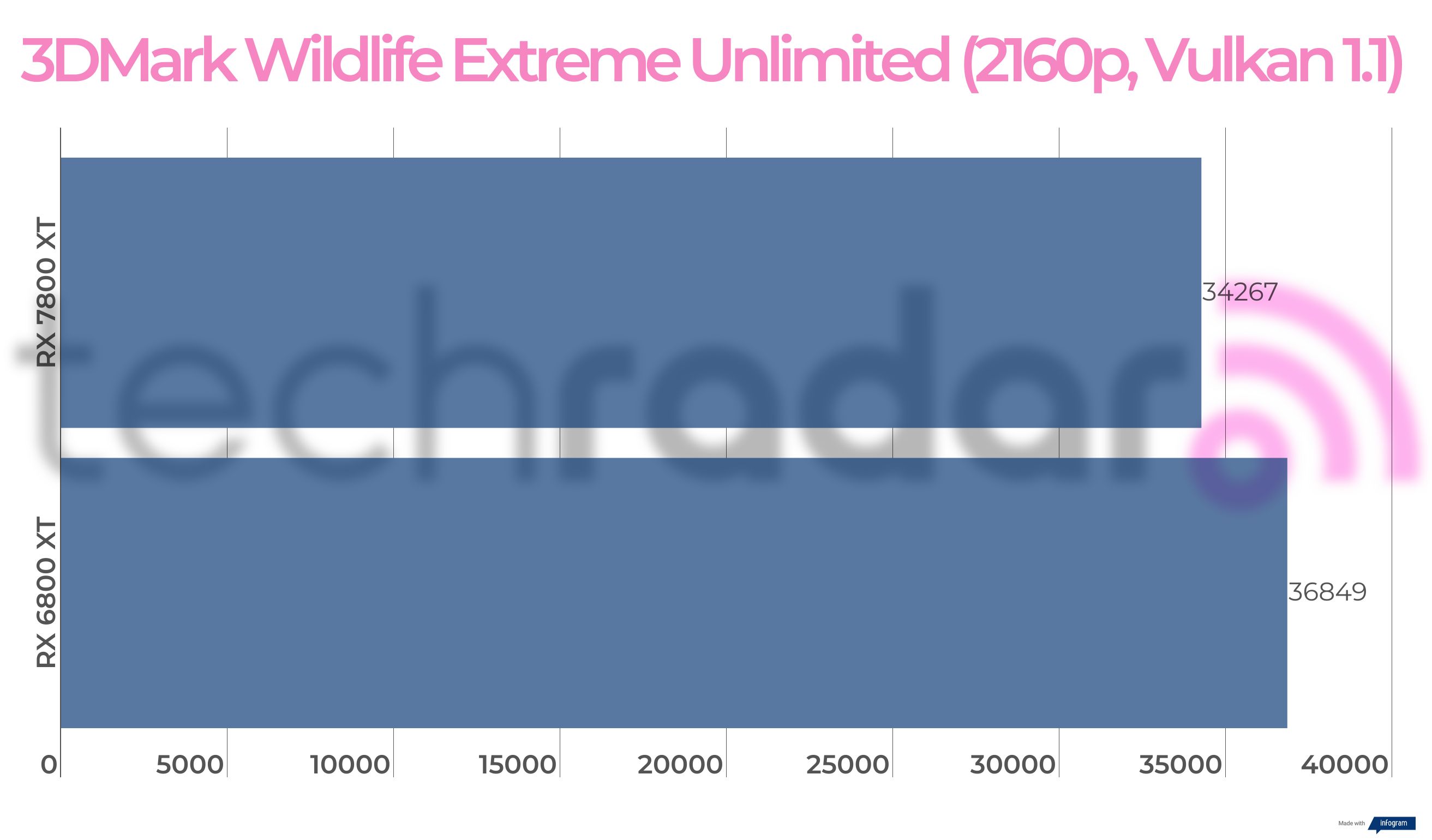
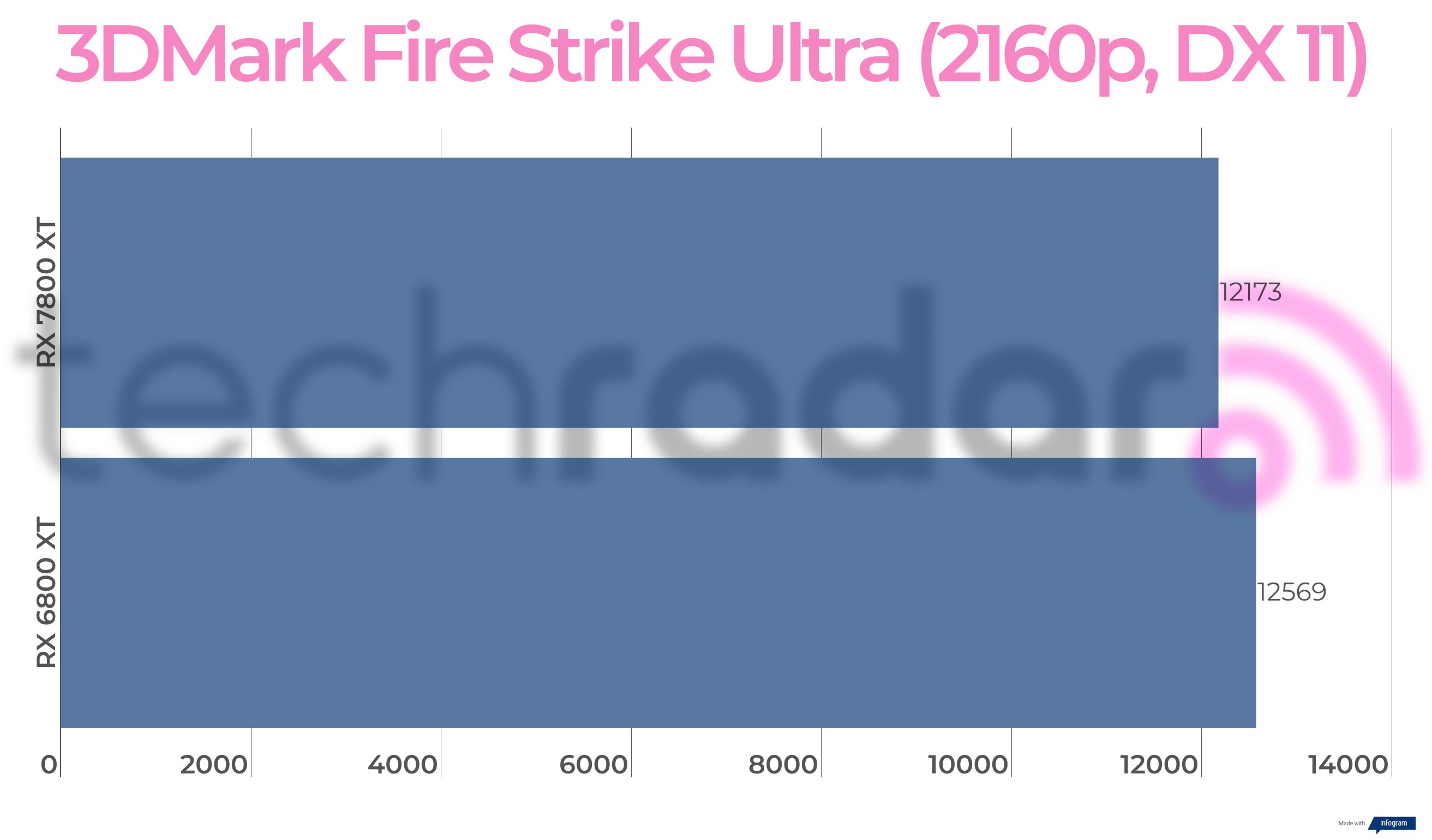
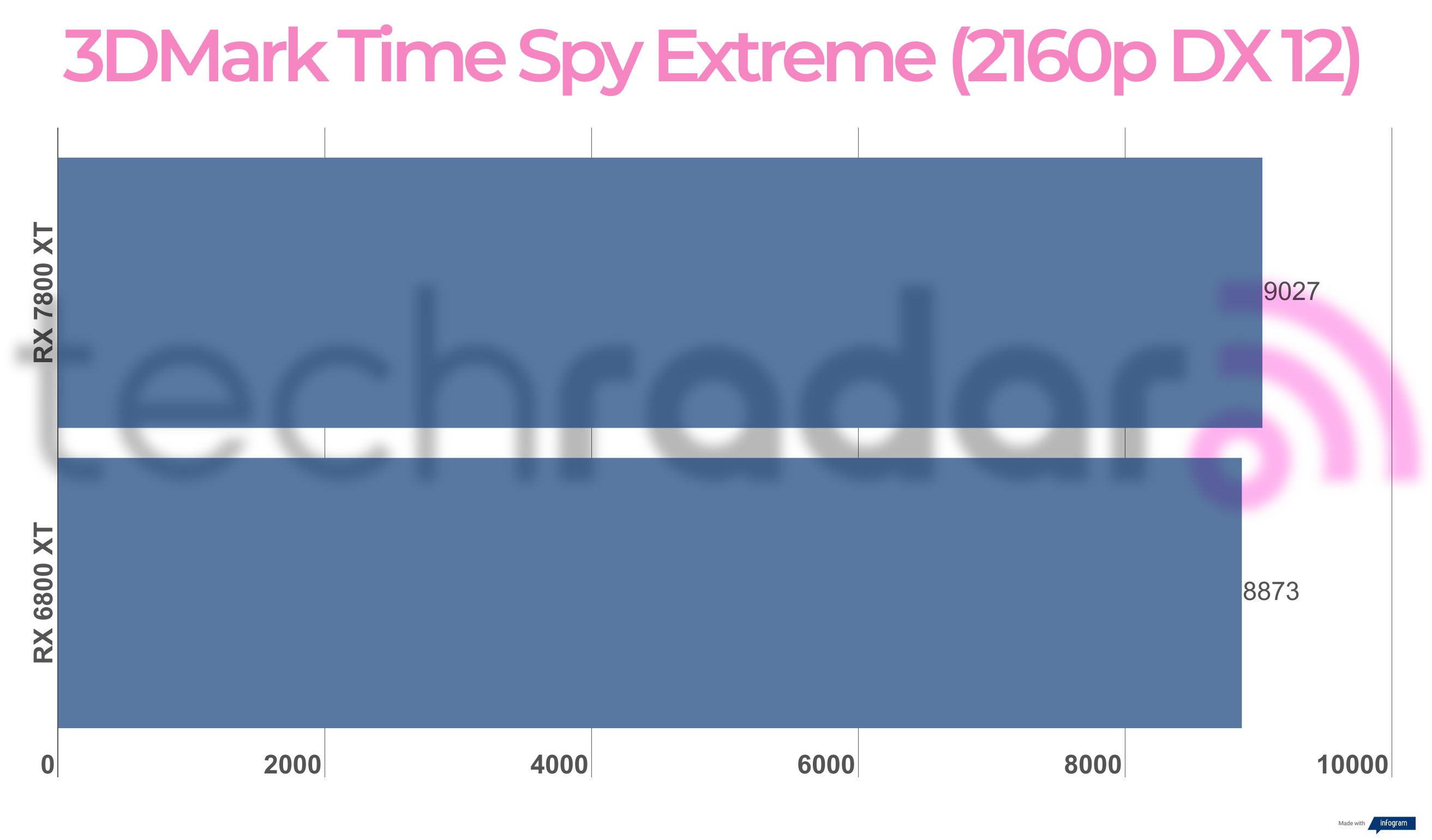
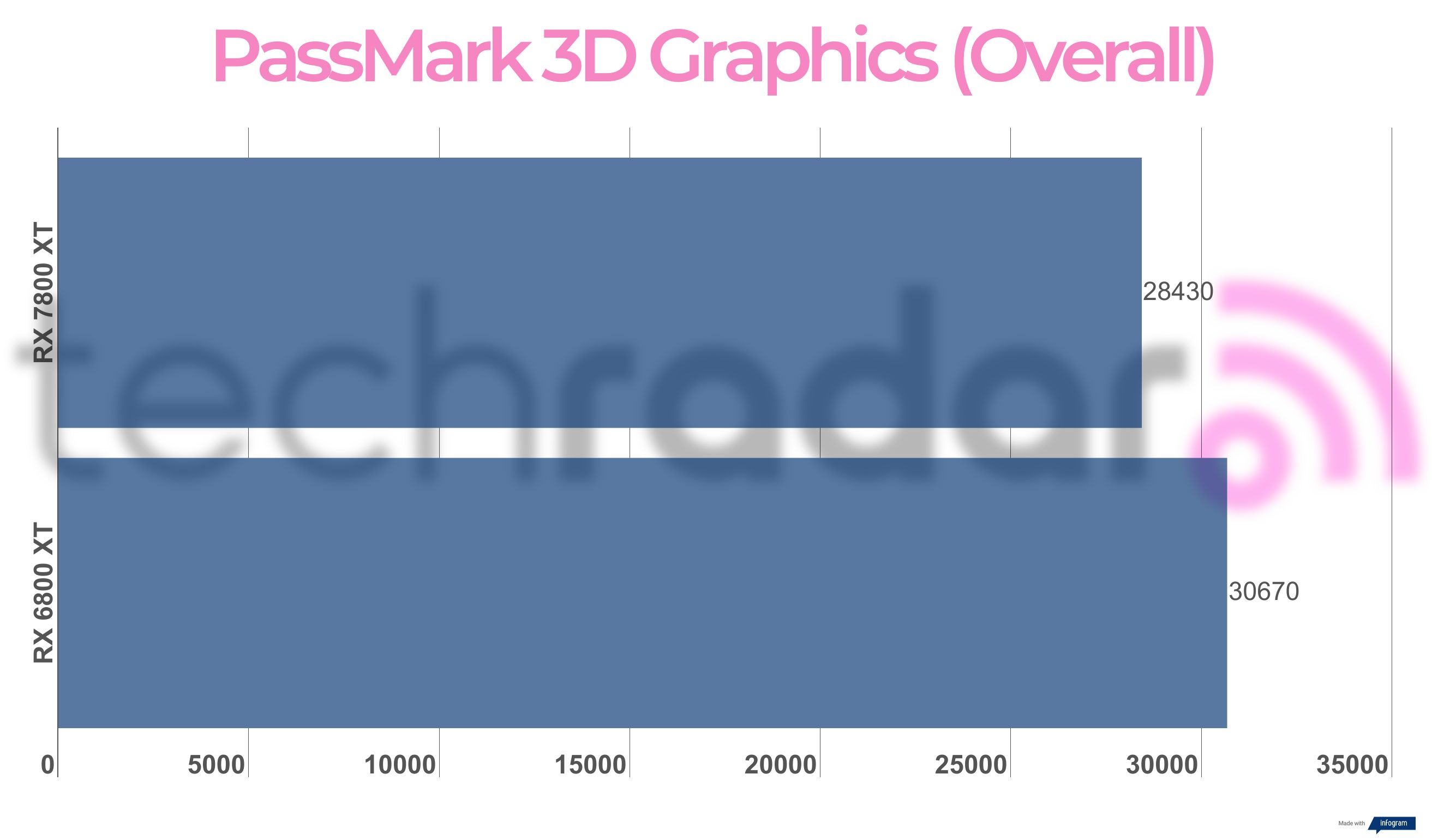
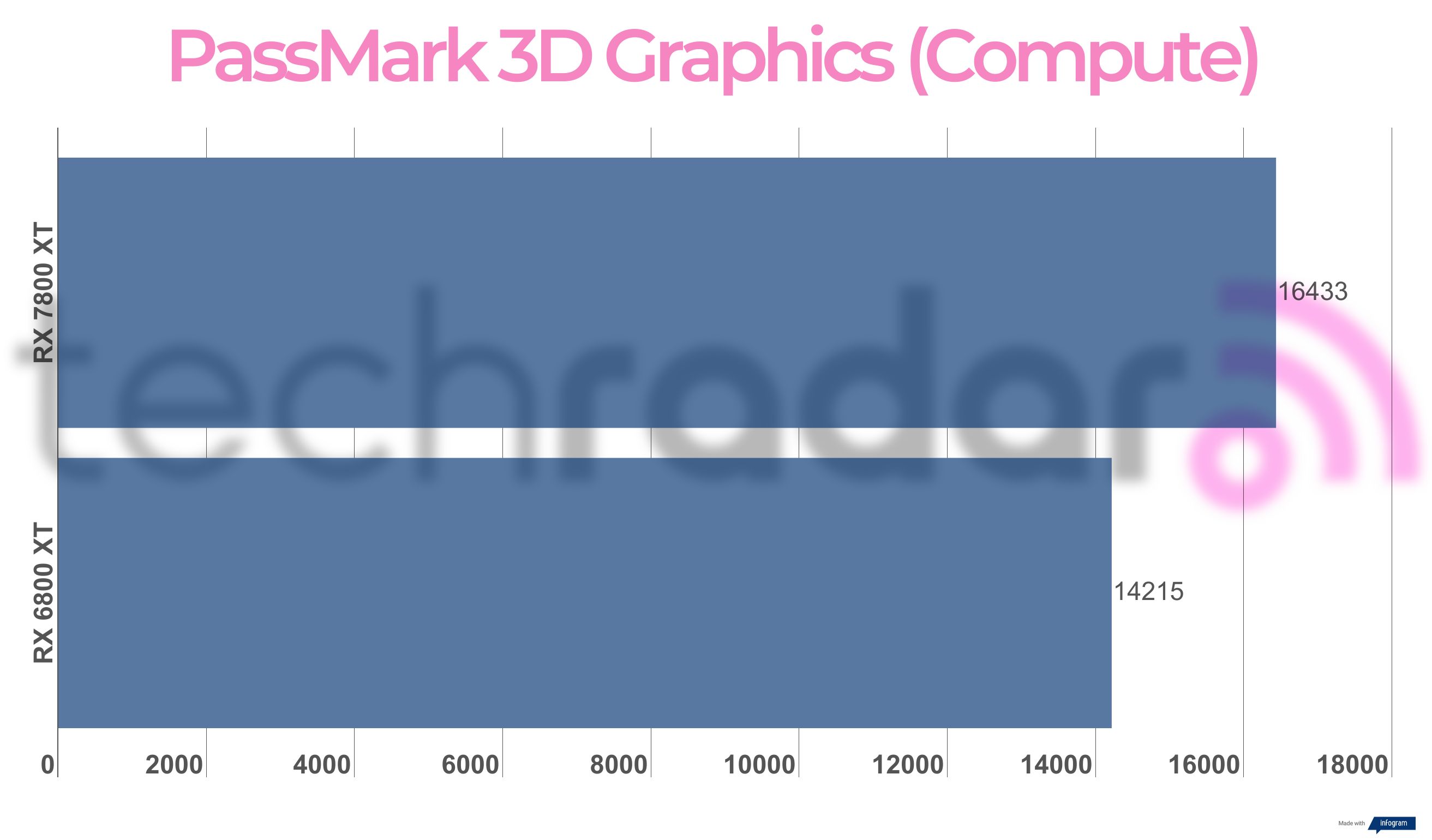
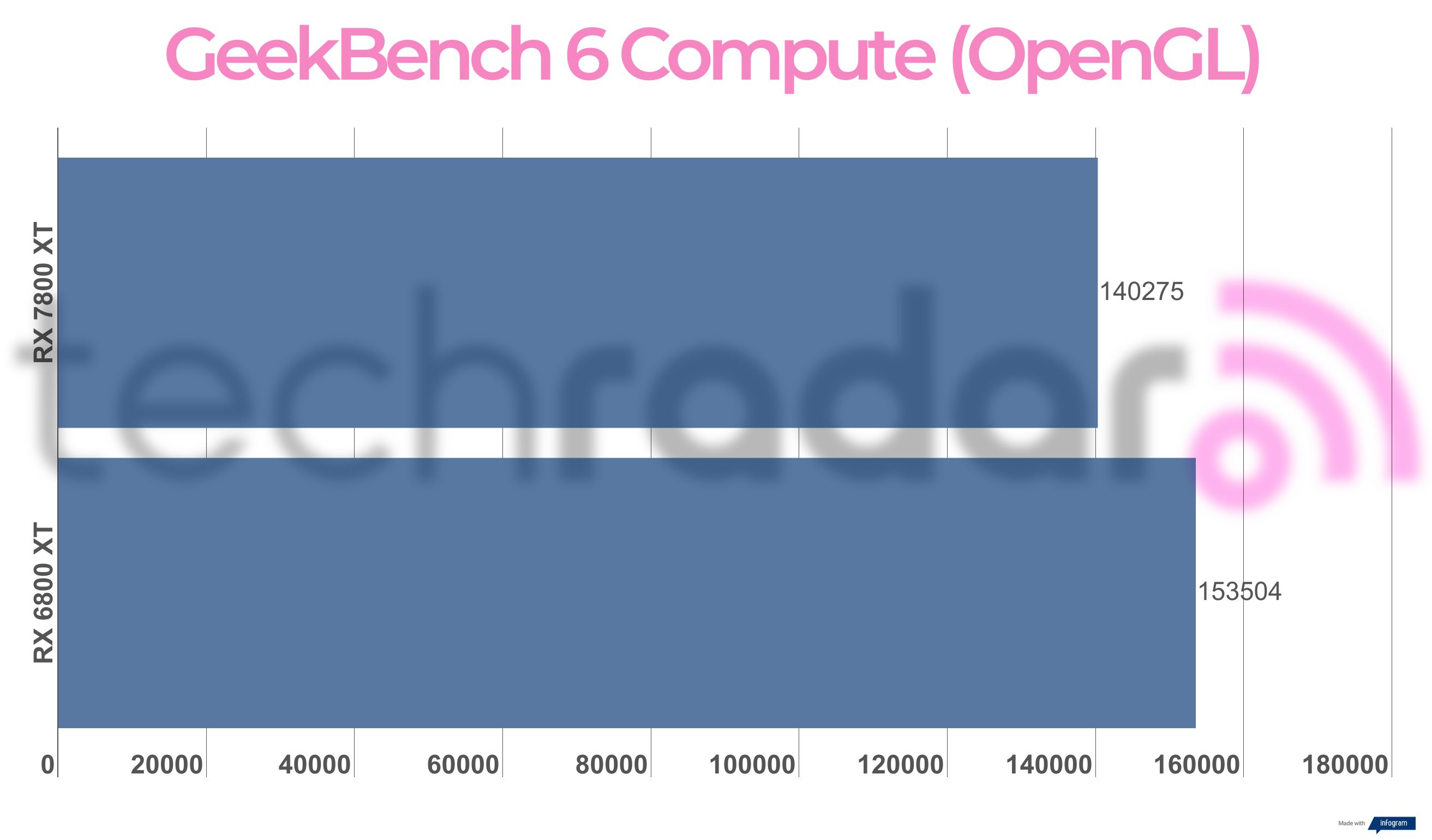
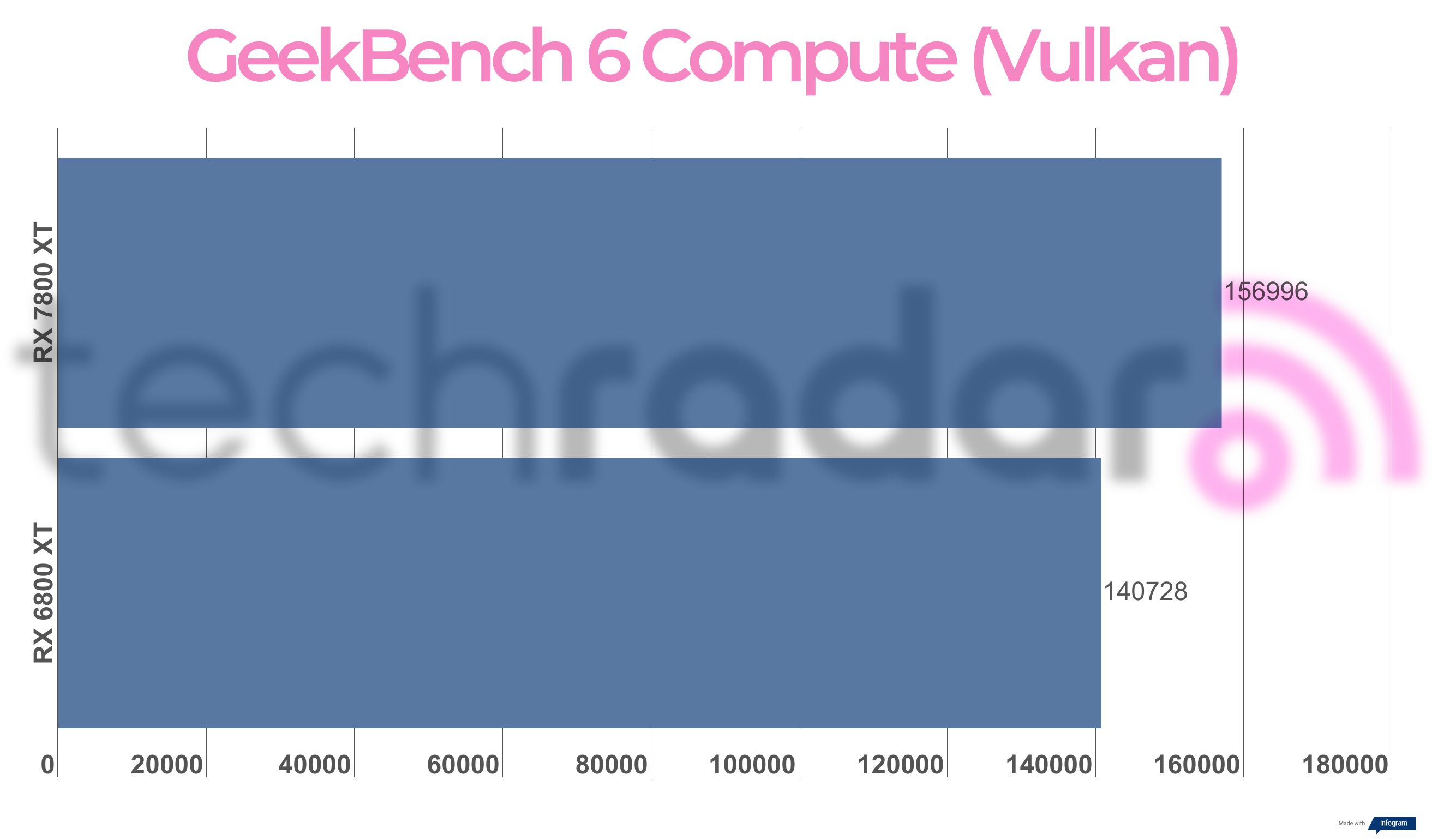
When it comes to synthetic benchmarks like 3DMark Fire Strike Extreme, the RX 6800 XT actually manages to outperform its successor, which is something you really don't ever want to see. And while some tests, like 3DMark Night Raid went in the RX 7800 XT's favor, it was only by about 7%.
Averaging across all the synthetic graphics tests in our battery, the RX 7800 XT only managed 2.8% better performance than its predecessor. All in all, pretty shocking, really.
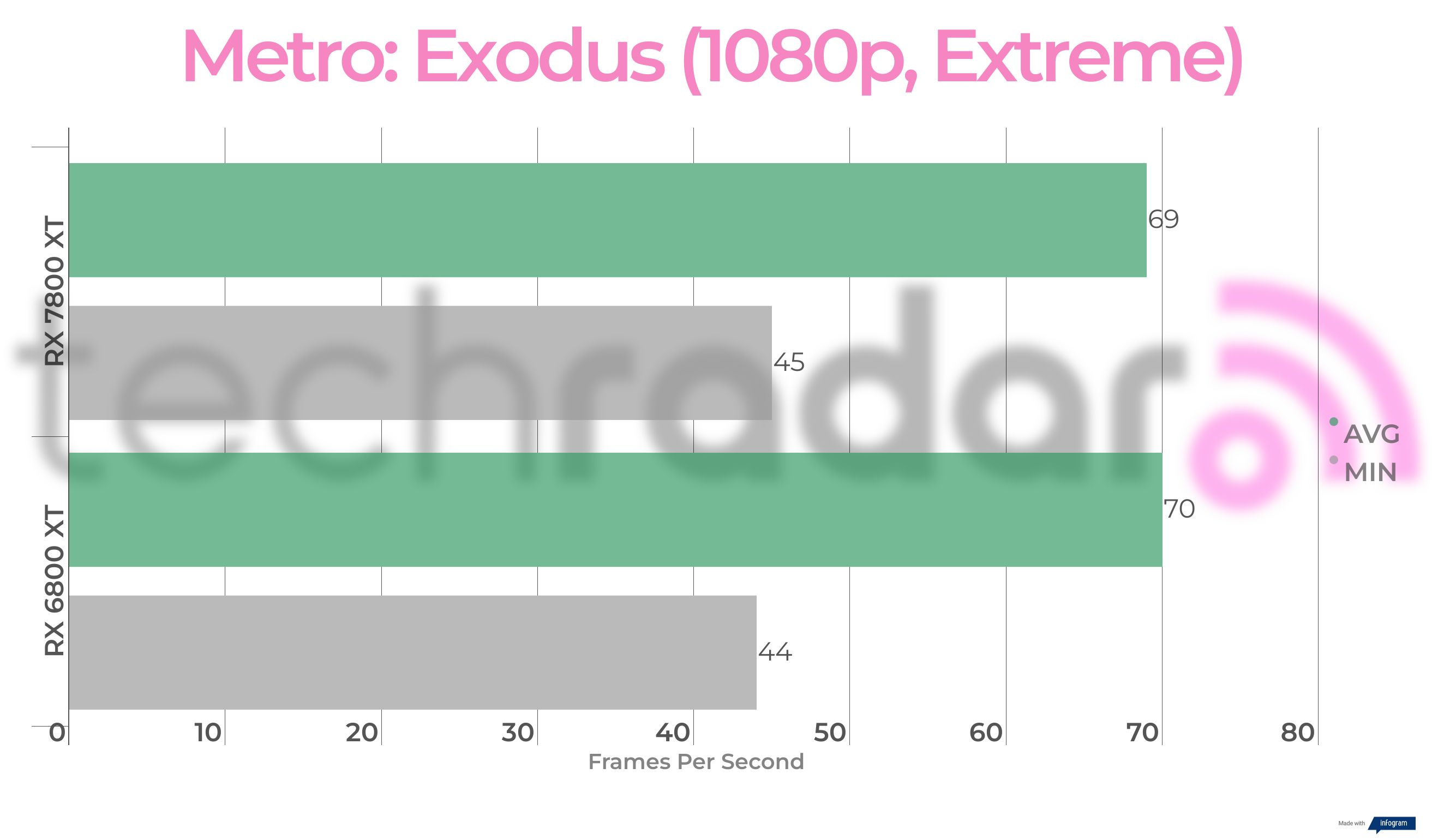
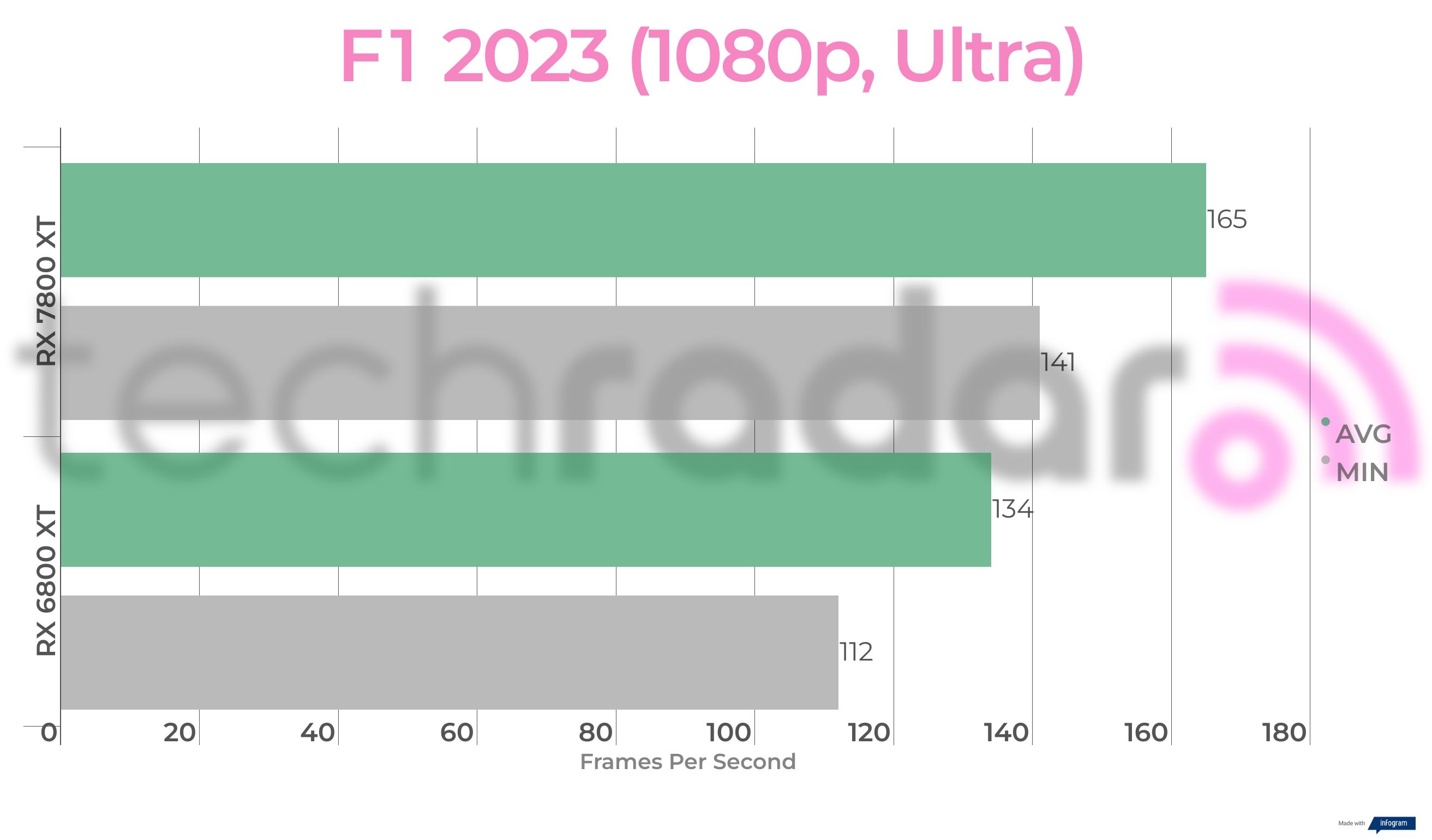
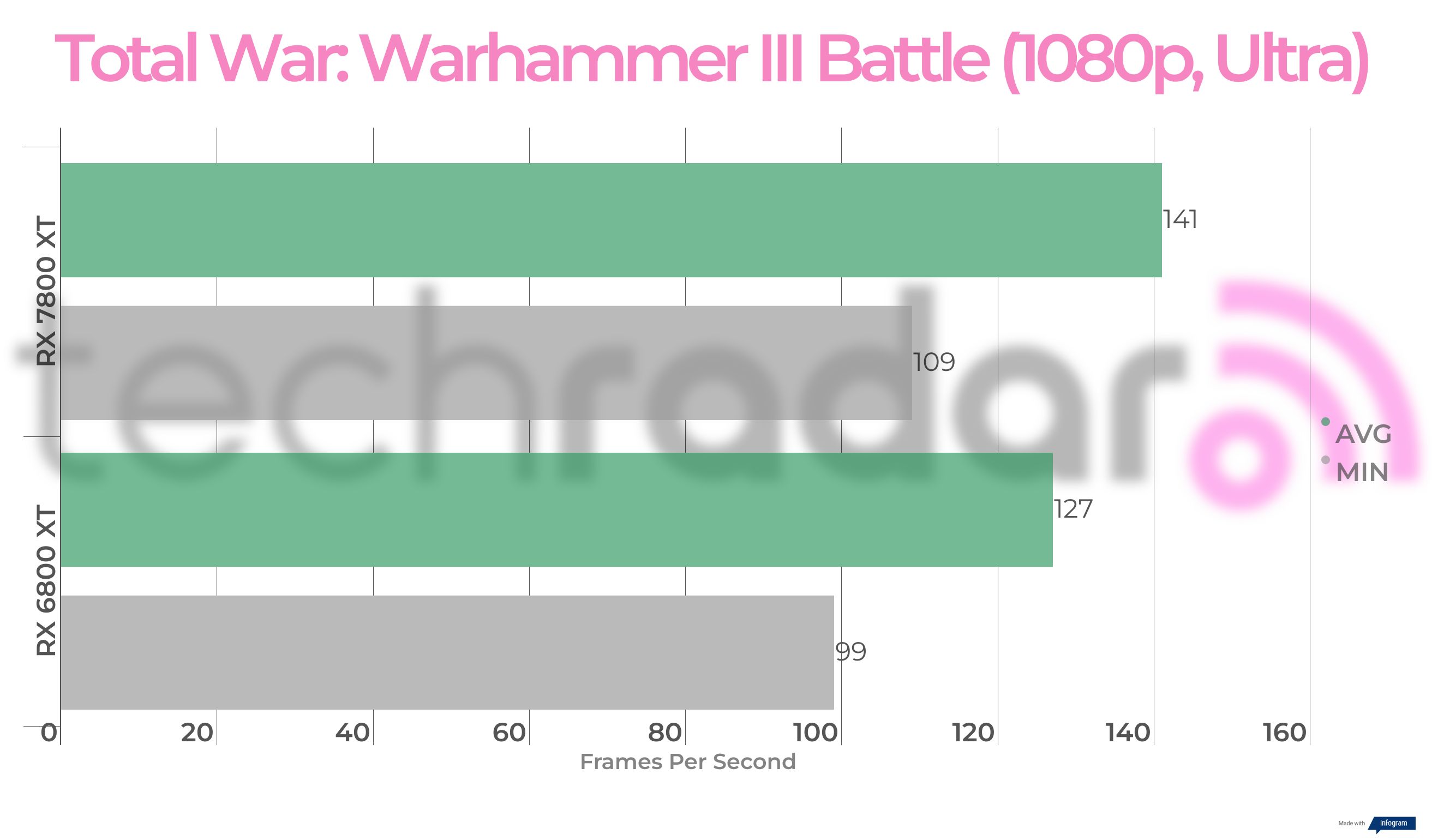
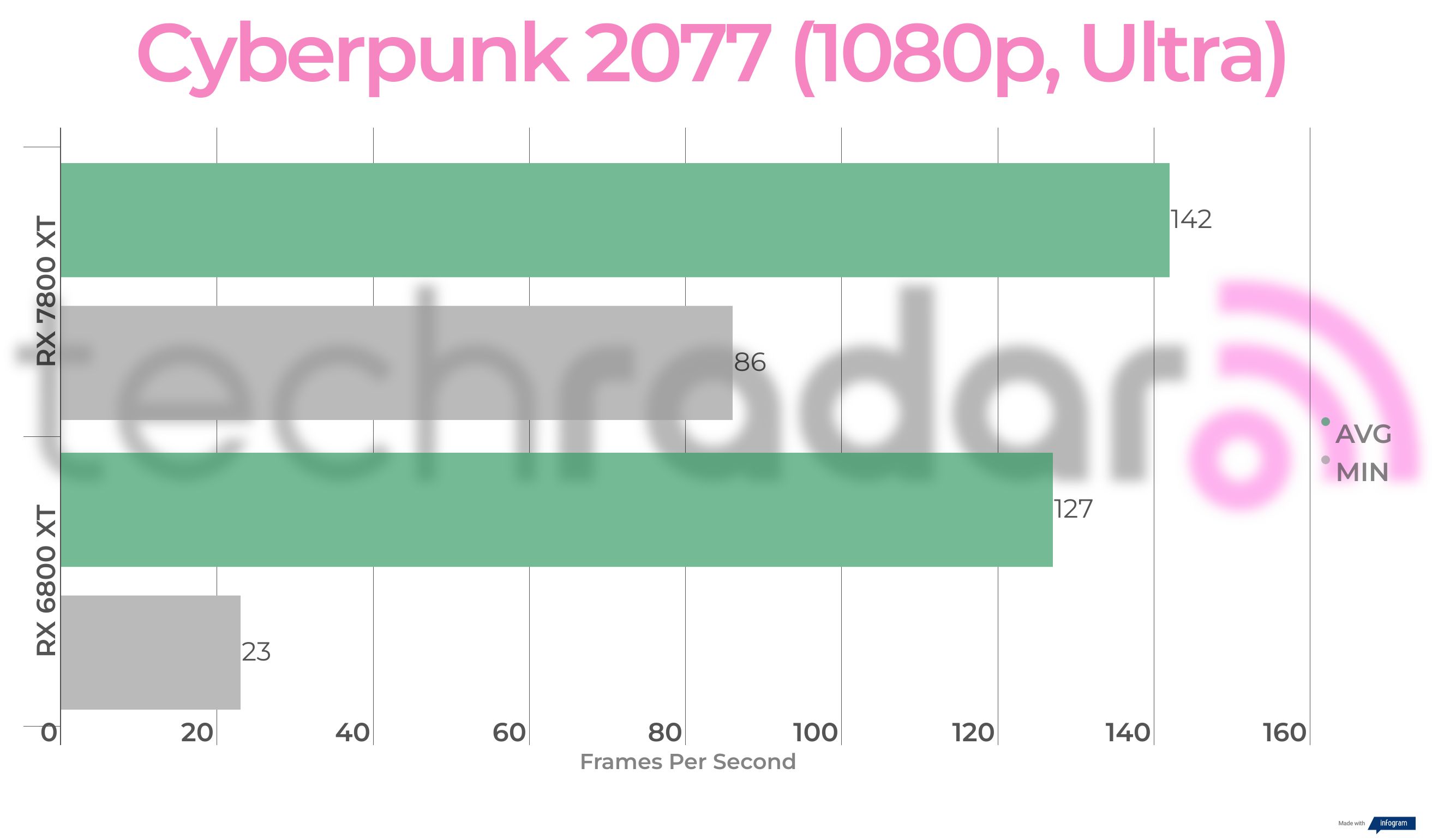
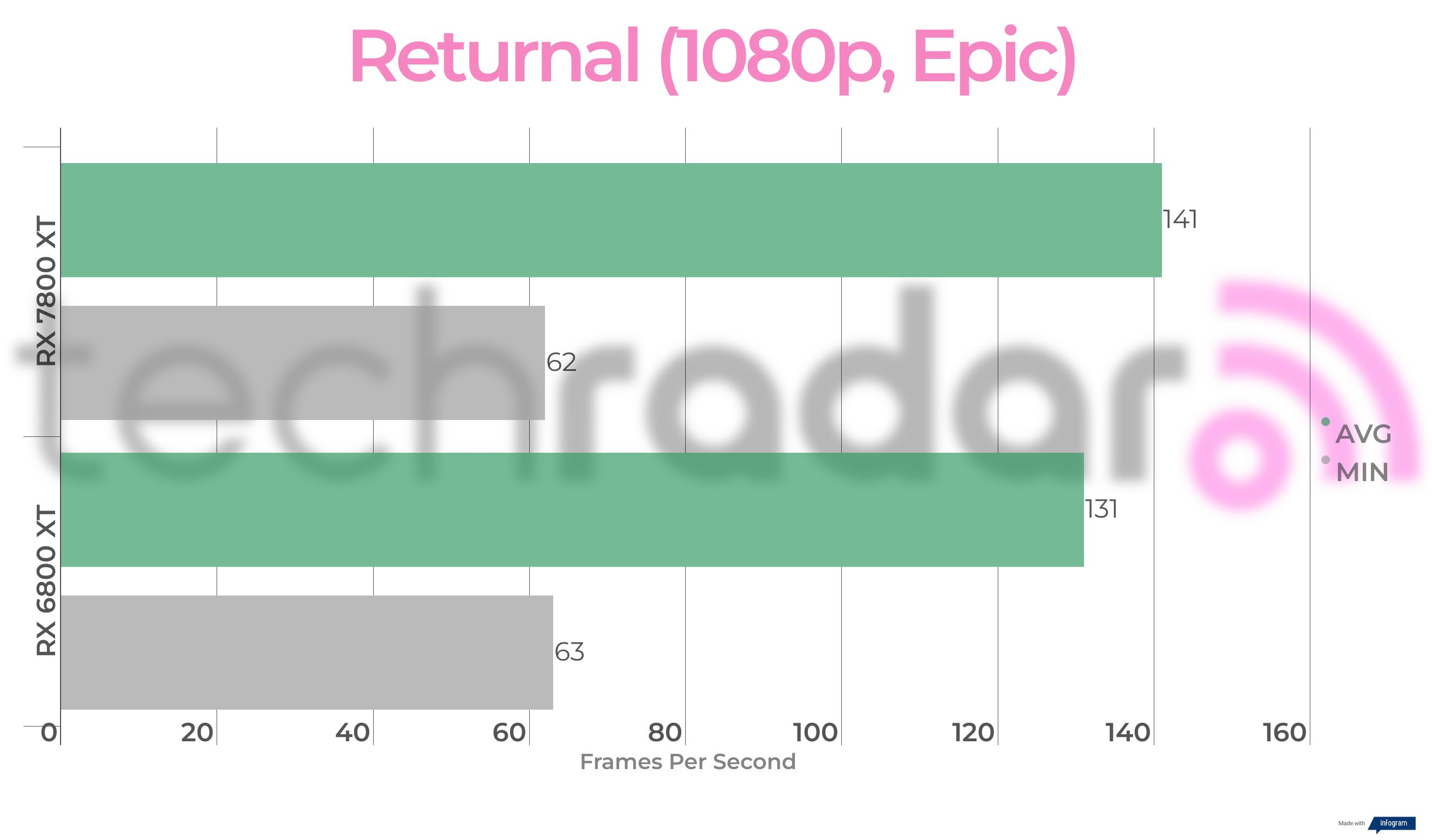
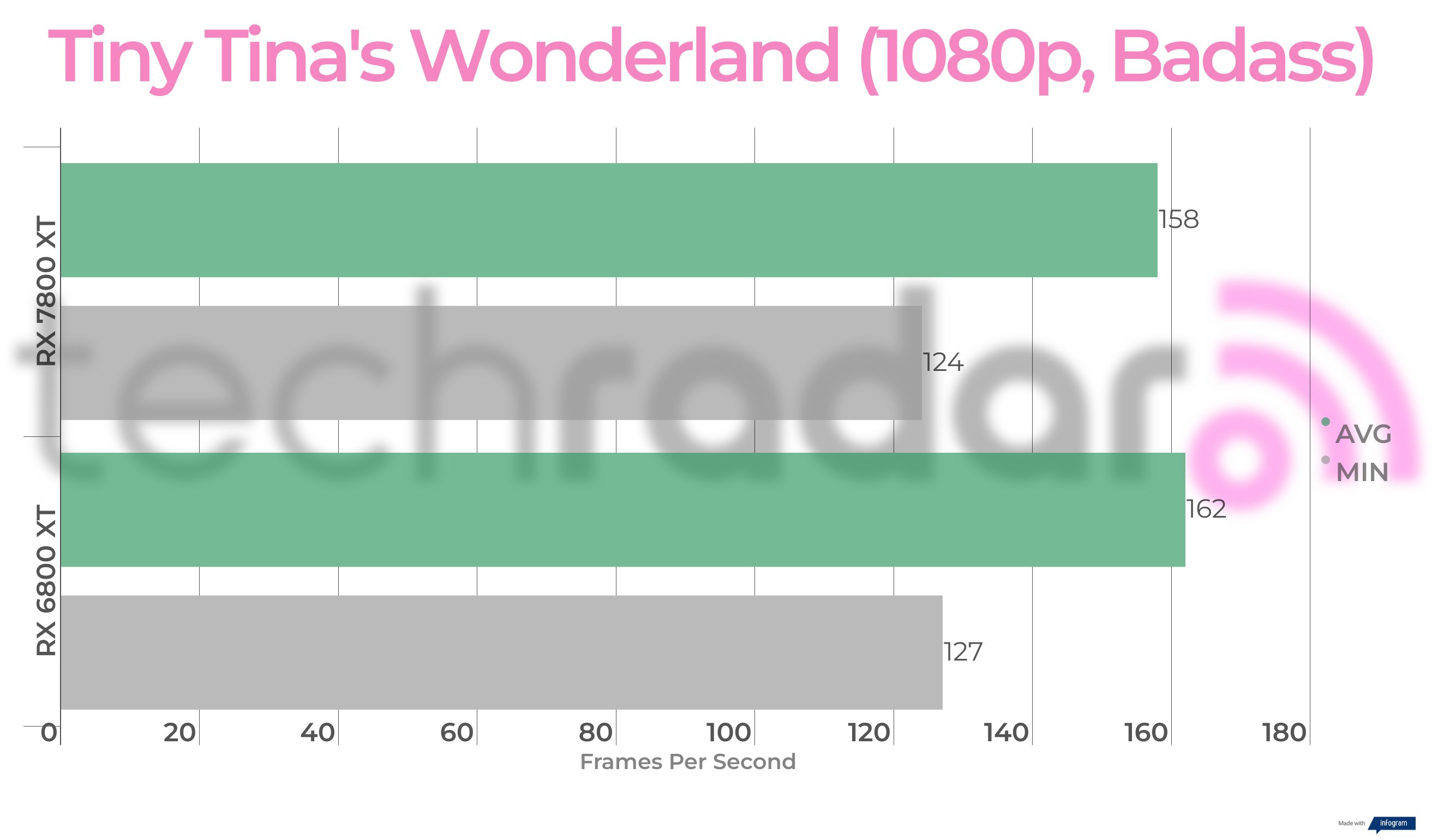
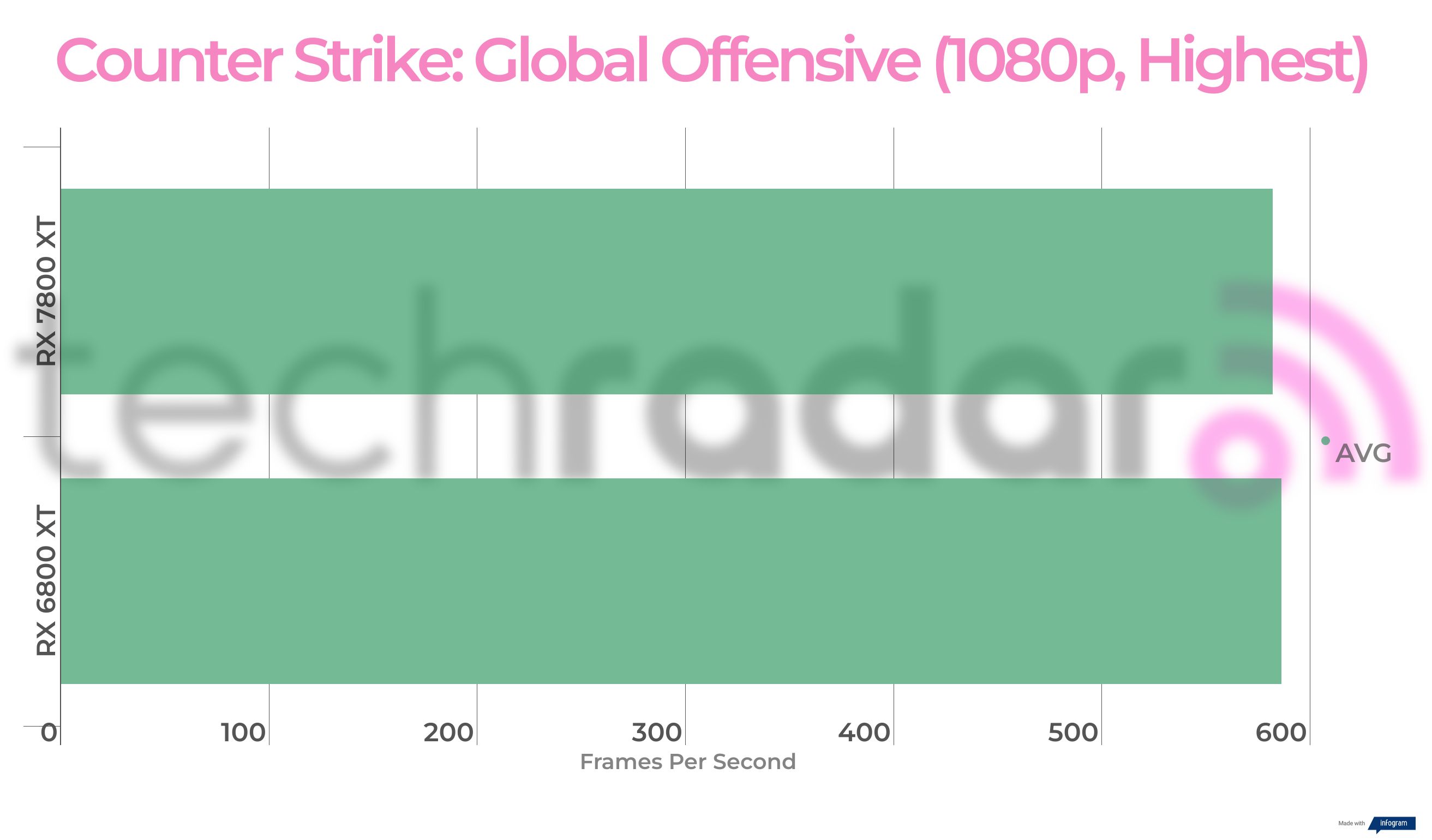
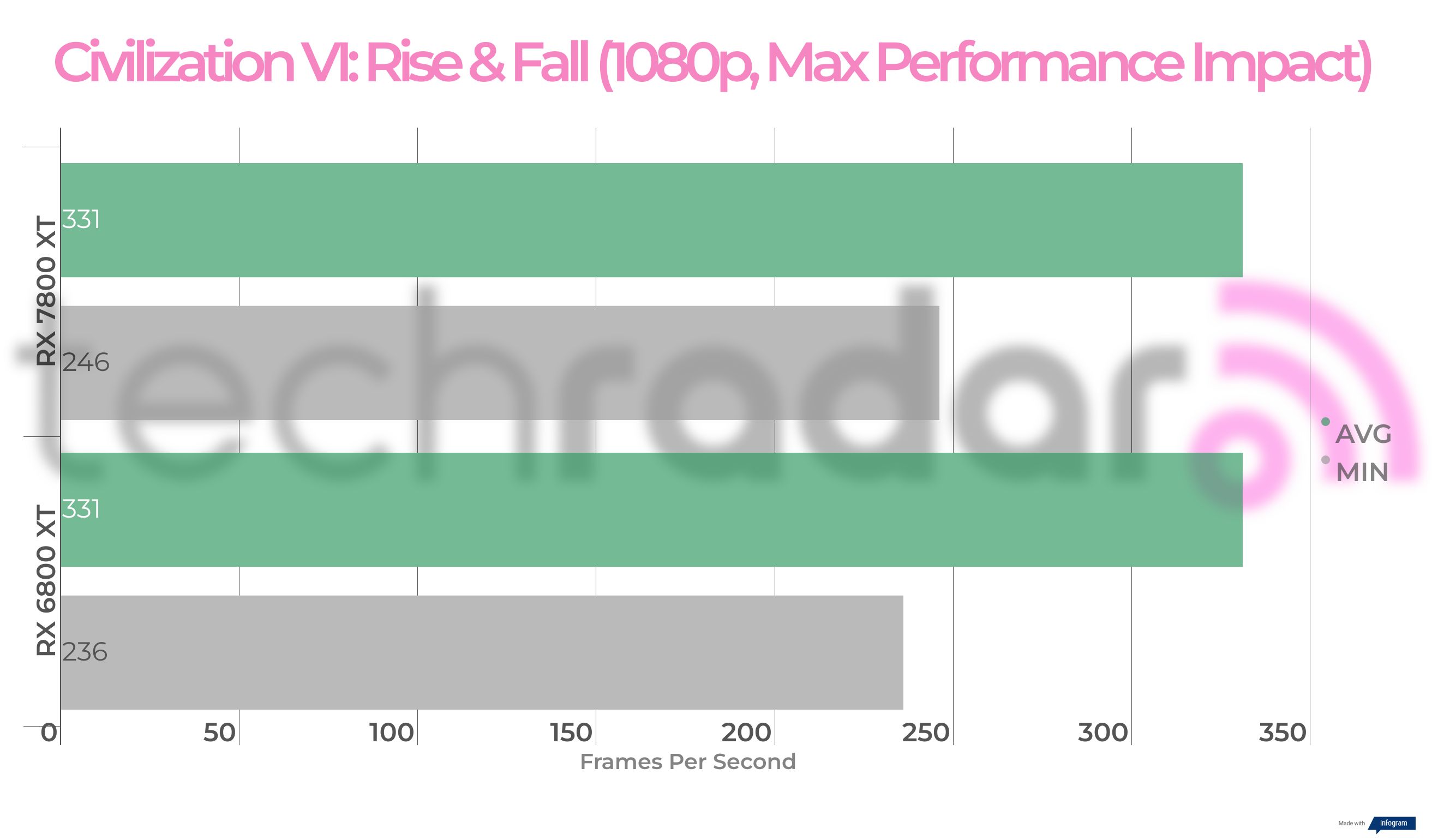
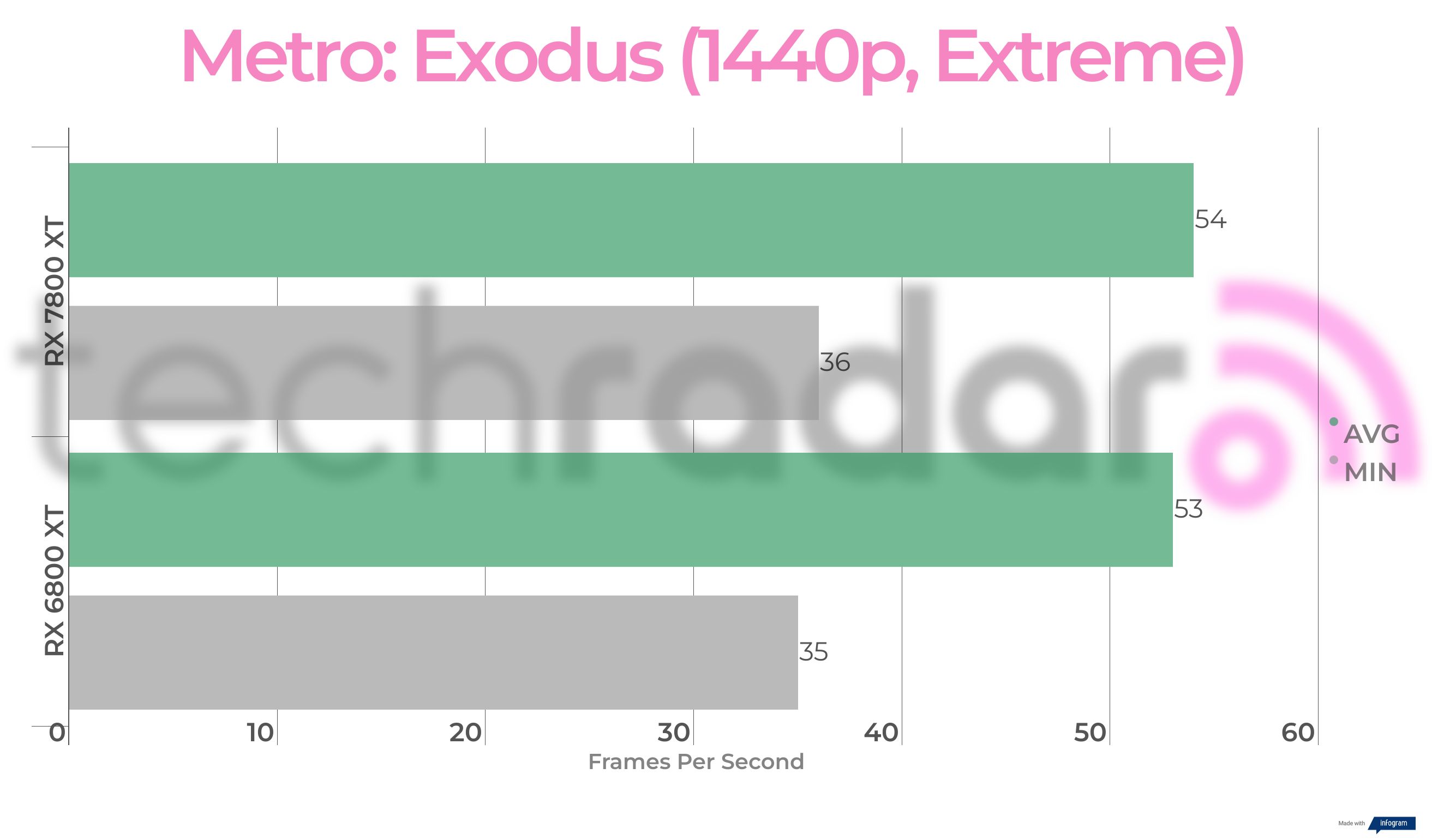
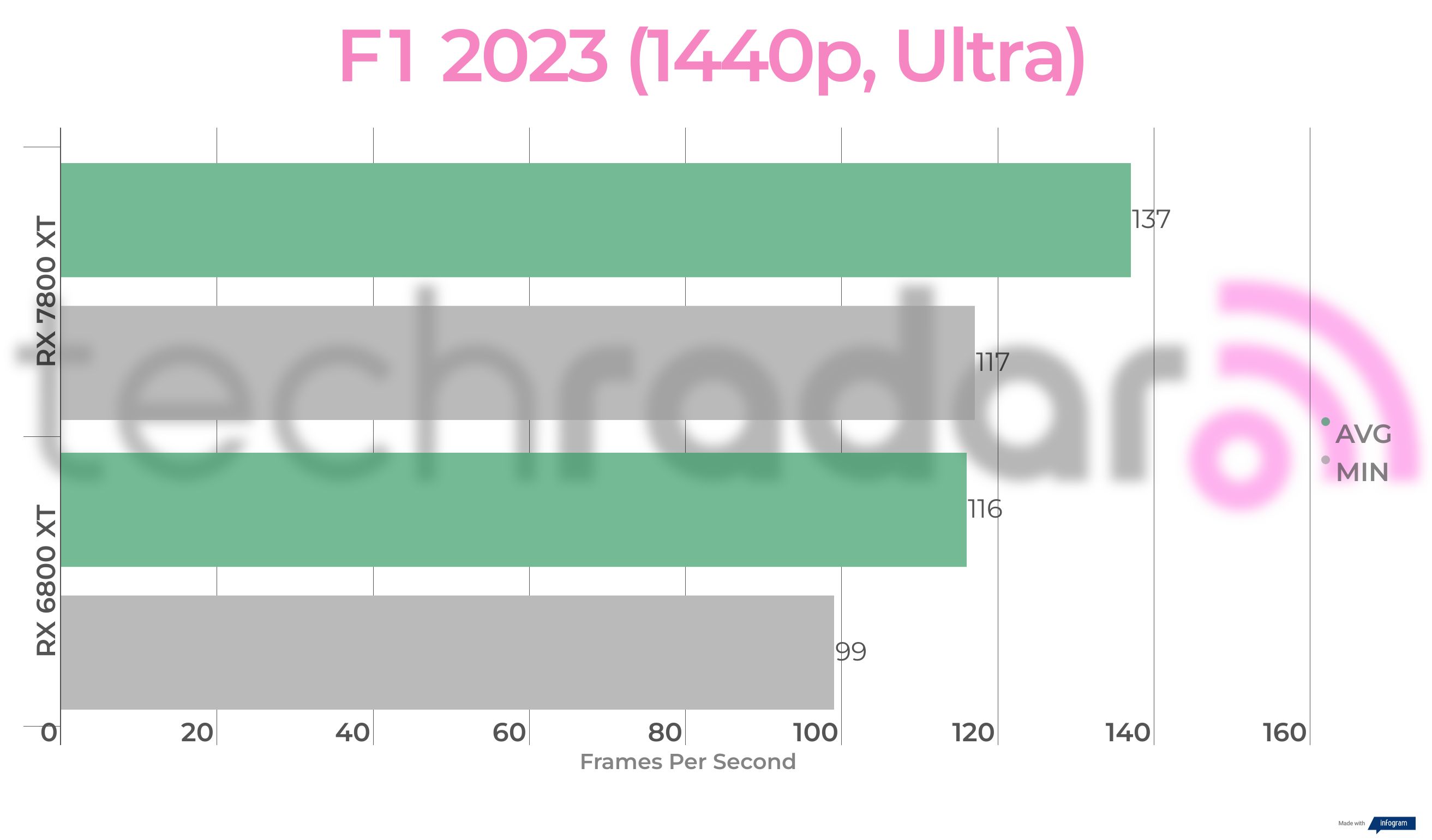
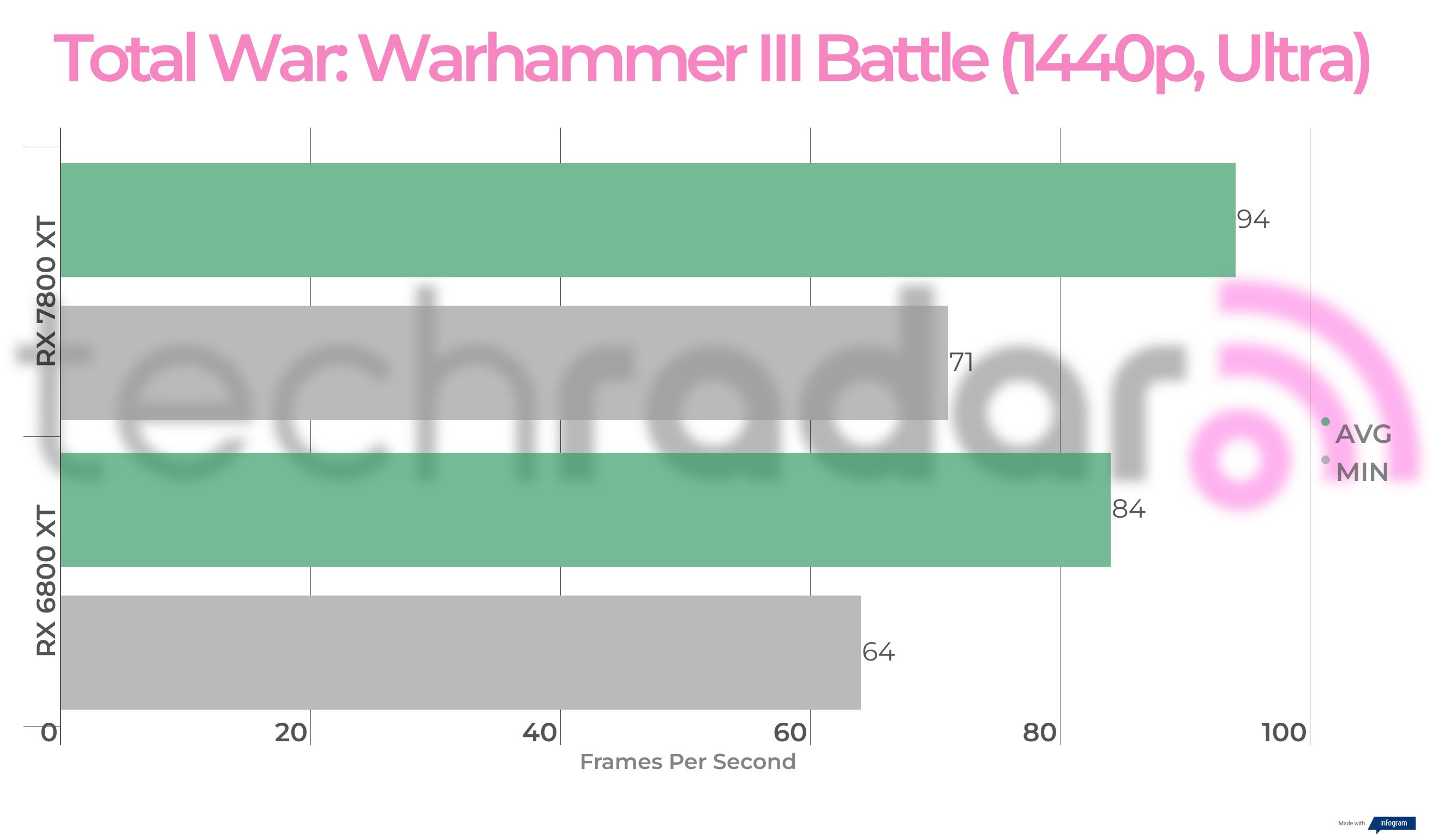
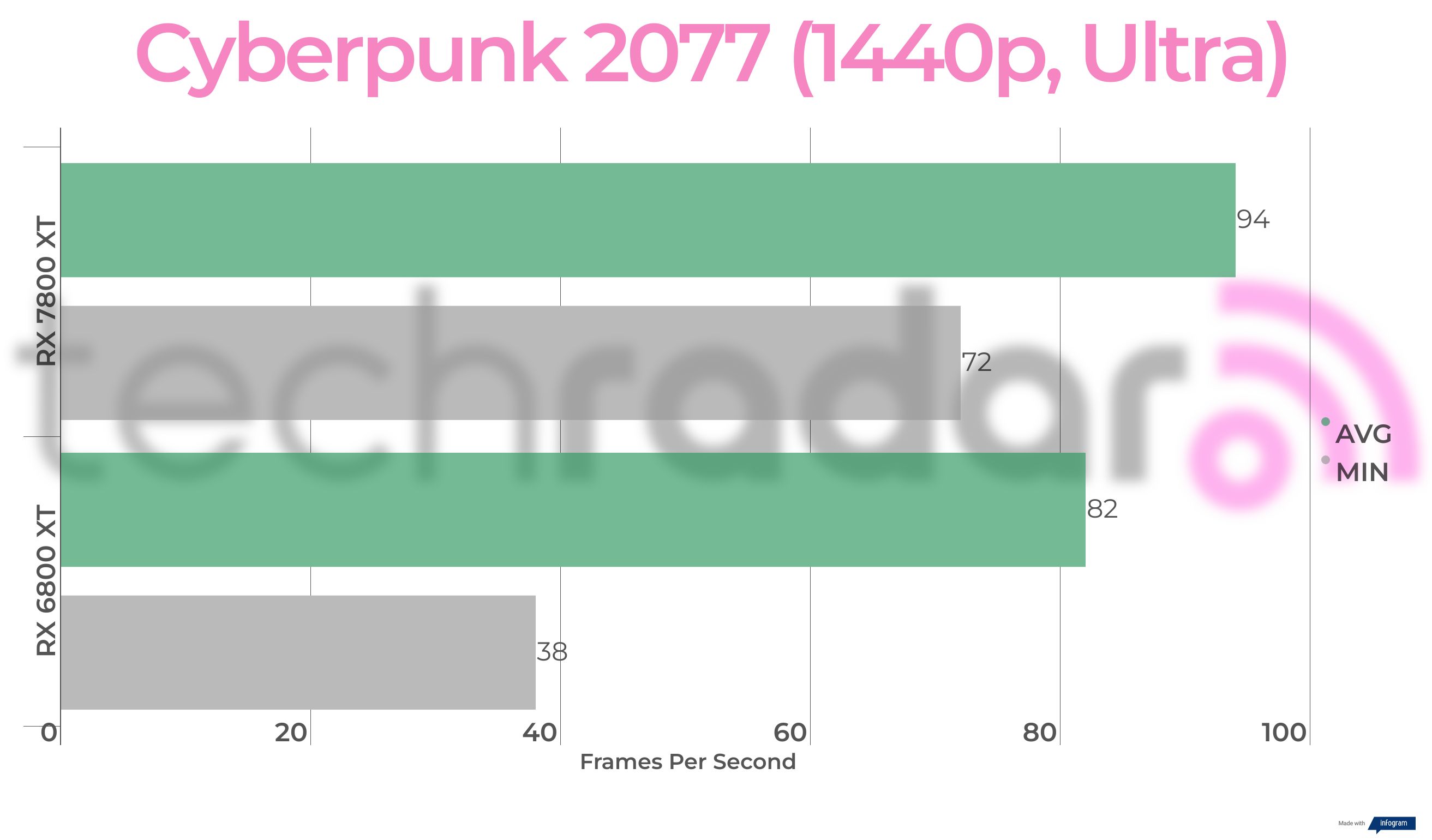
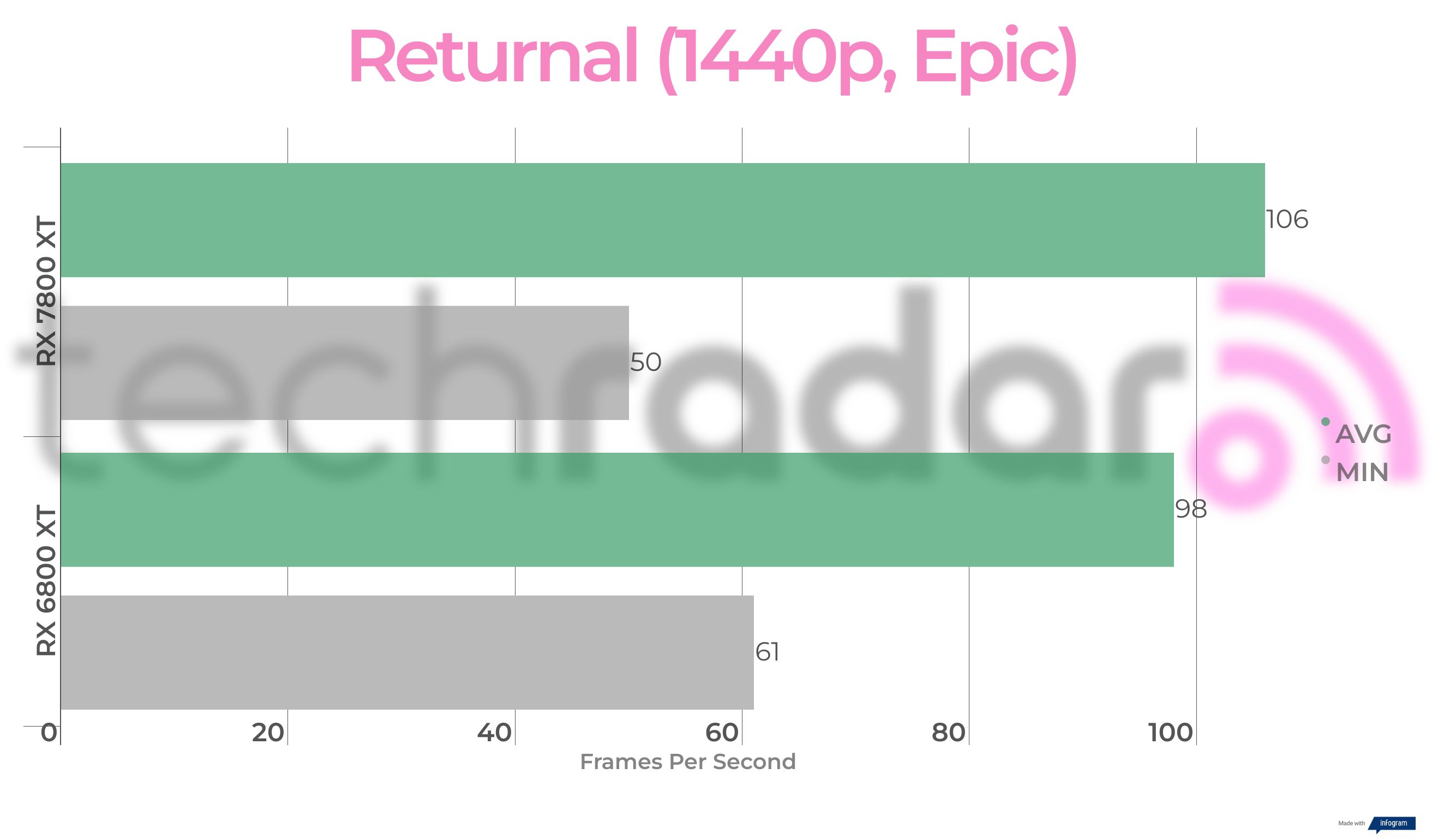
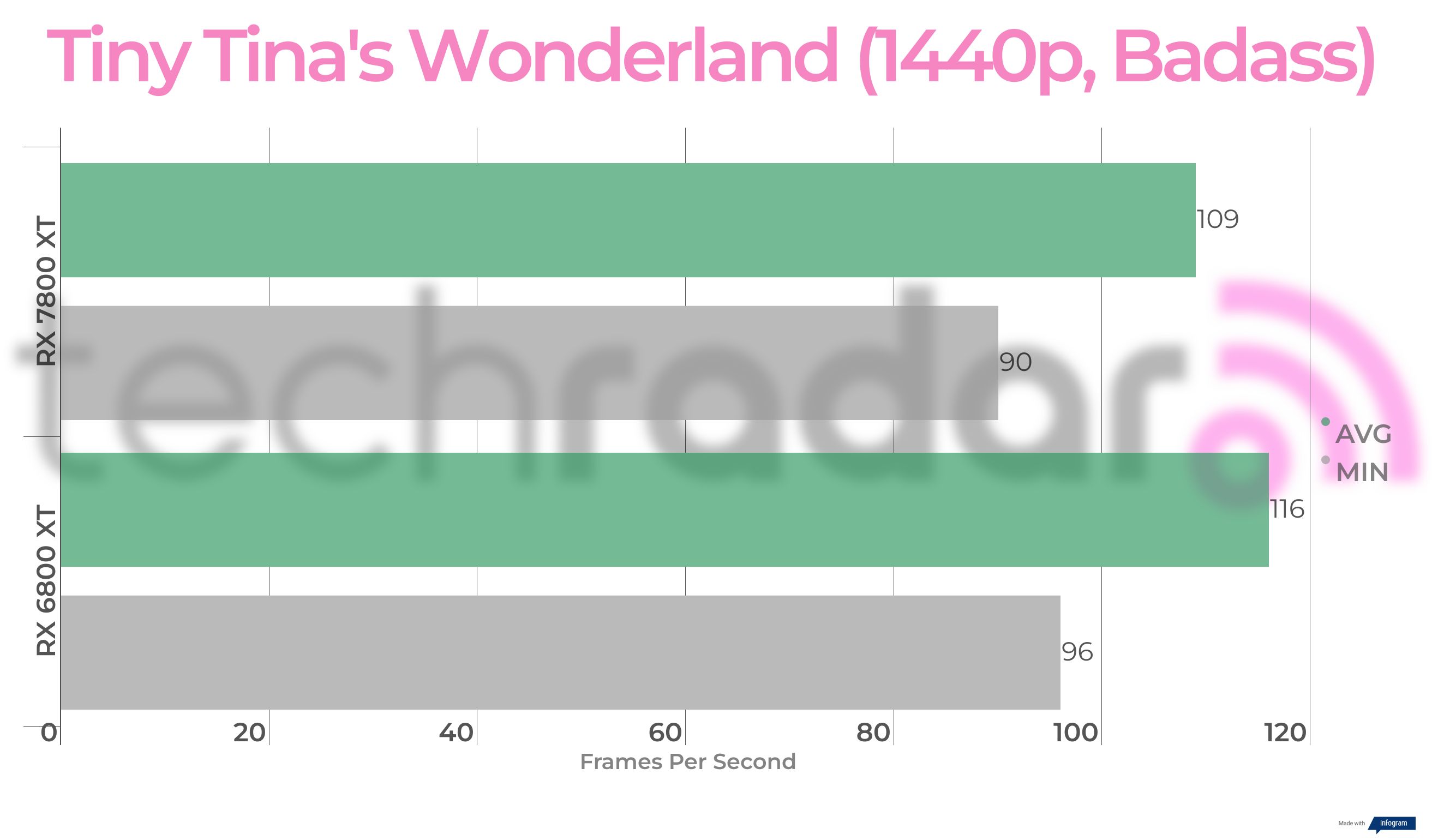
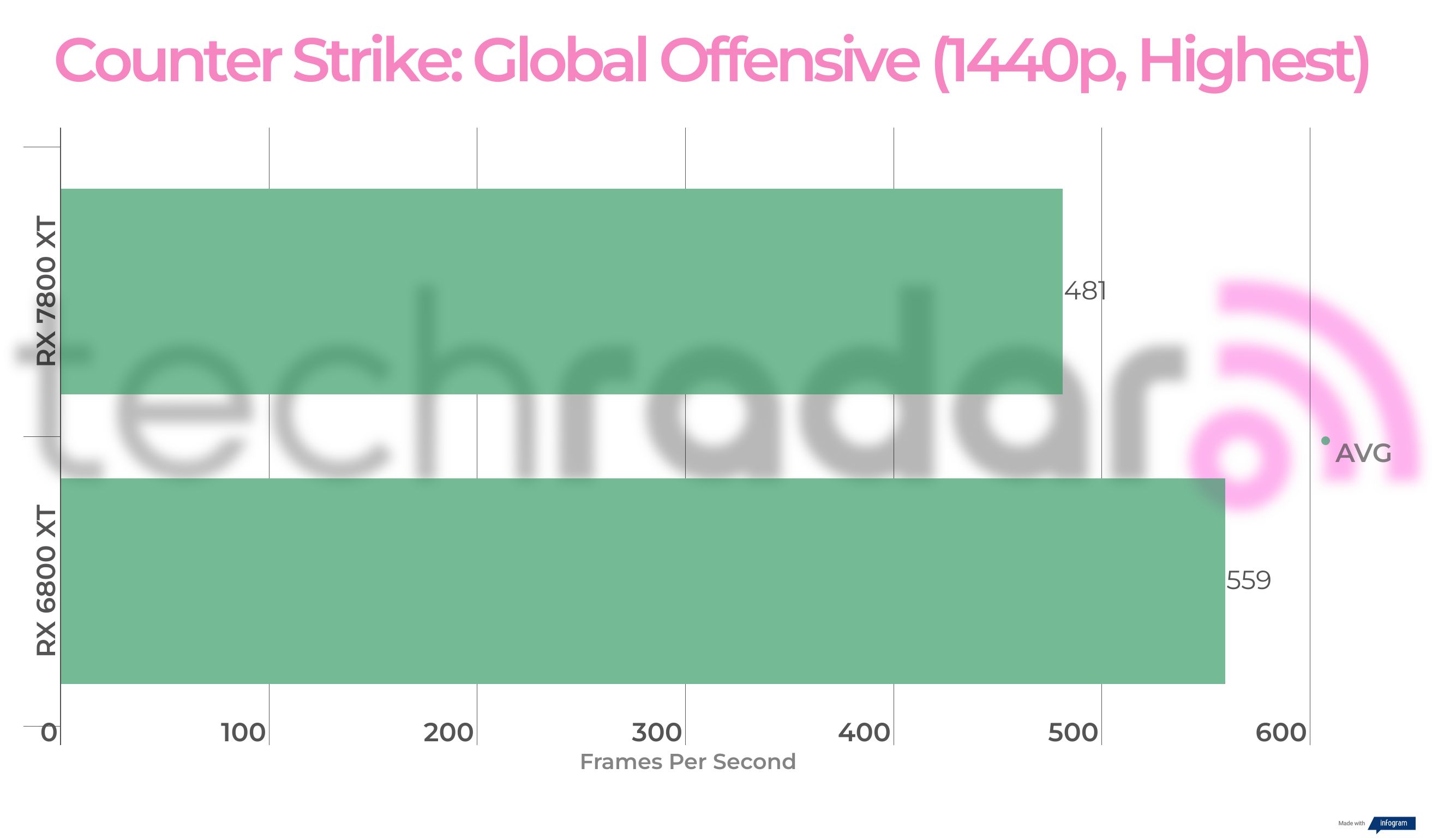
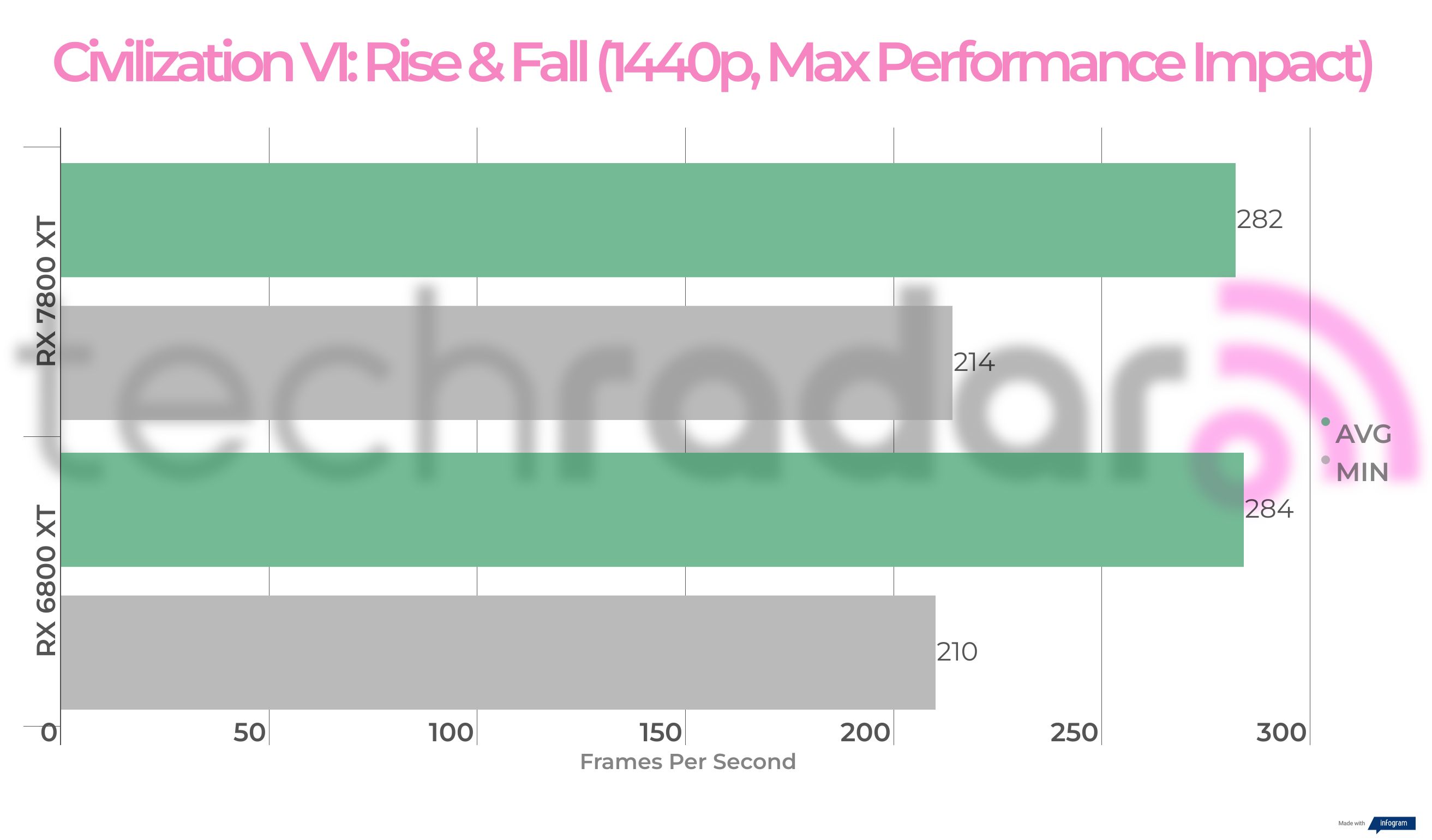
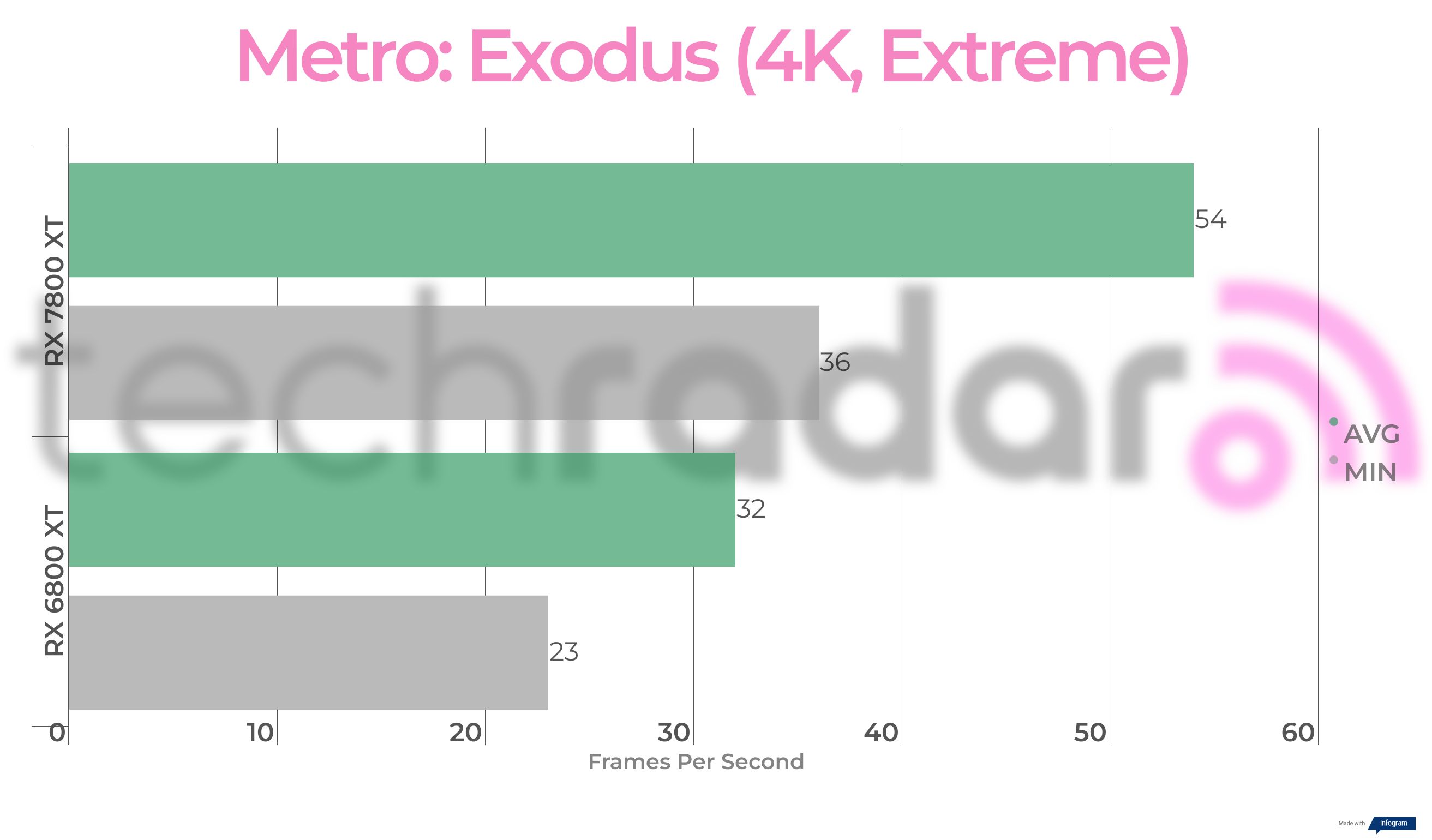
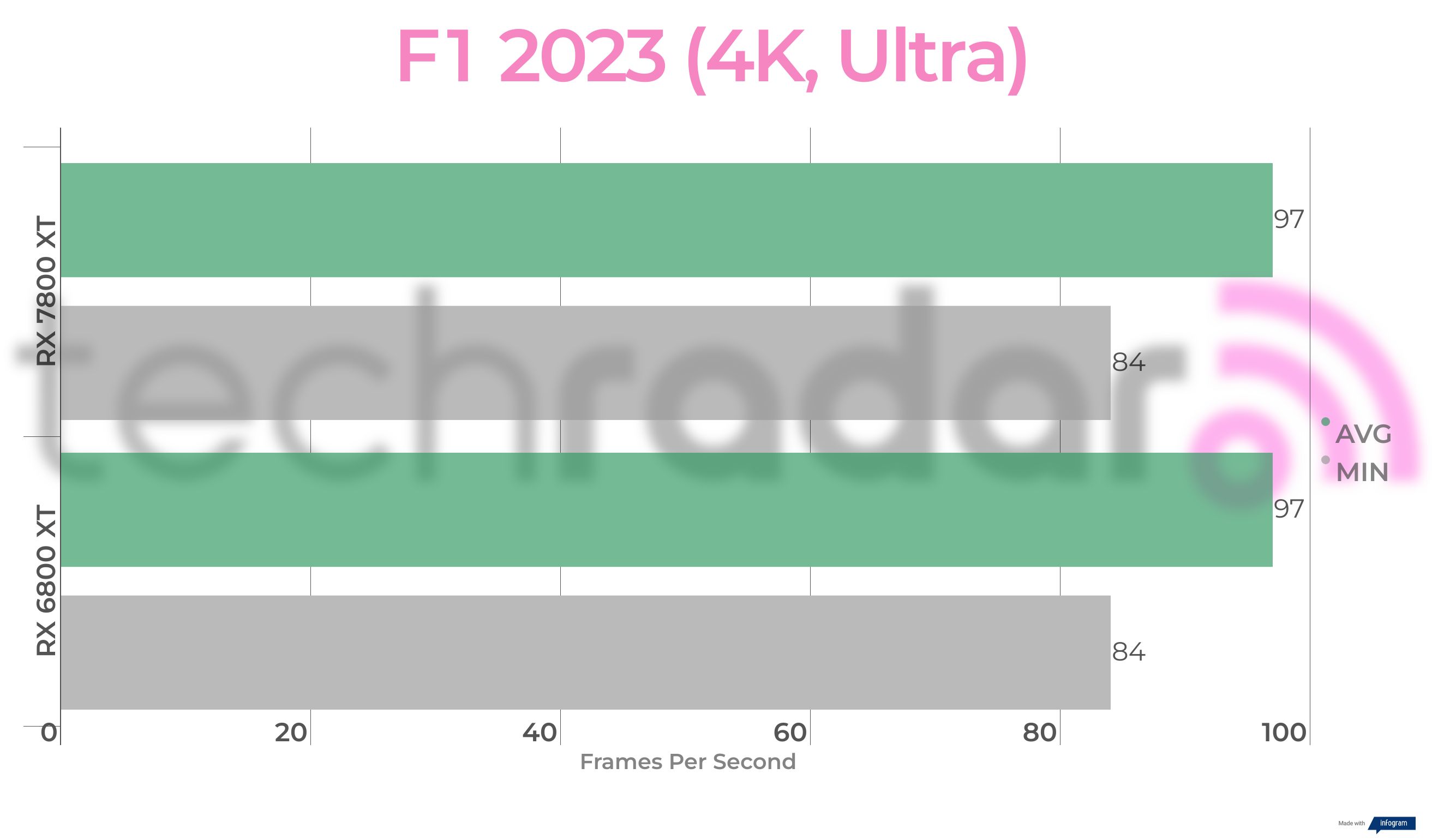
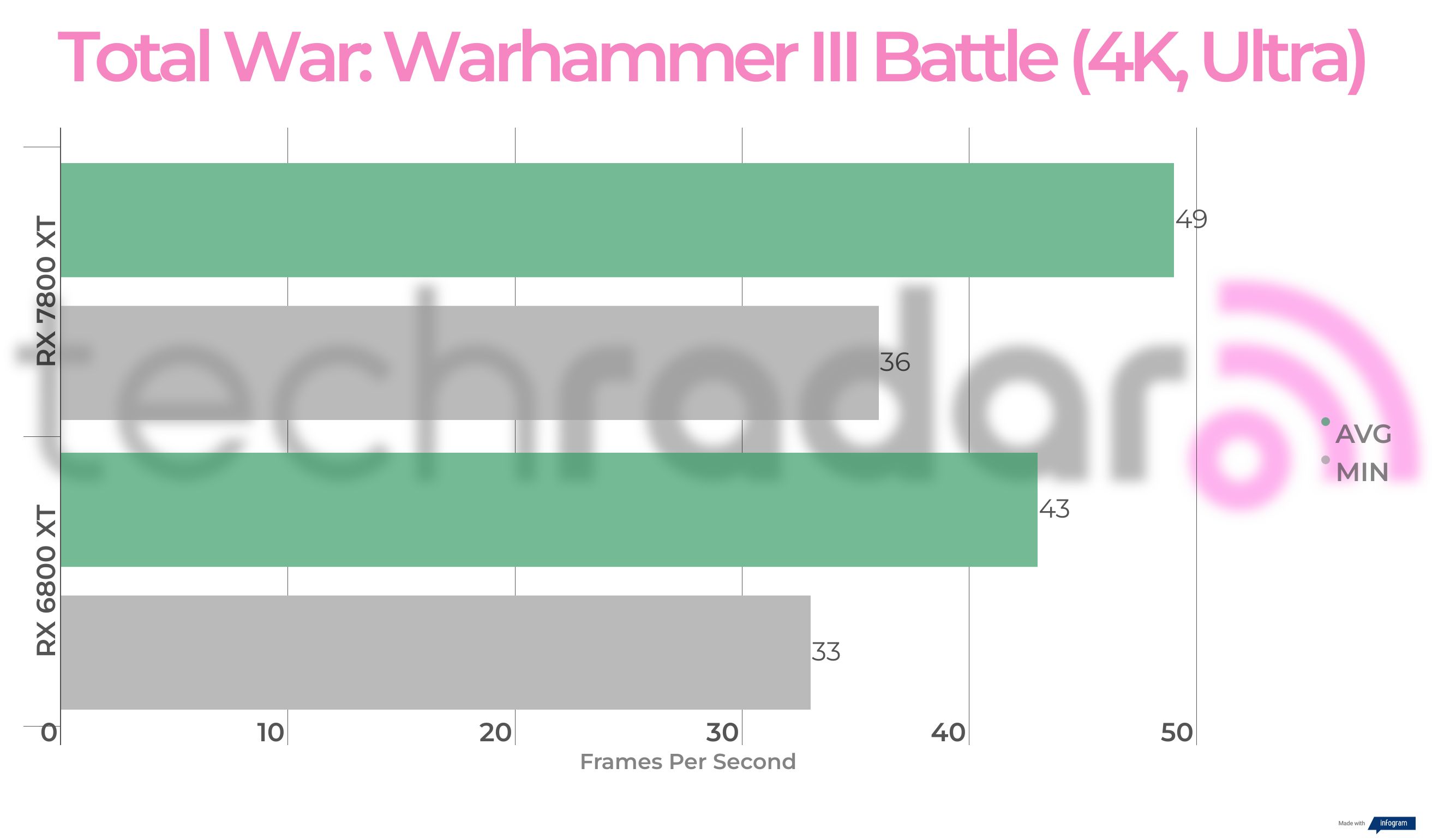
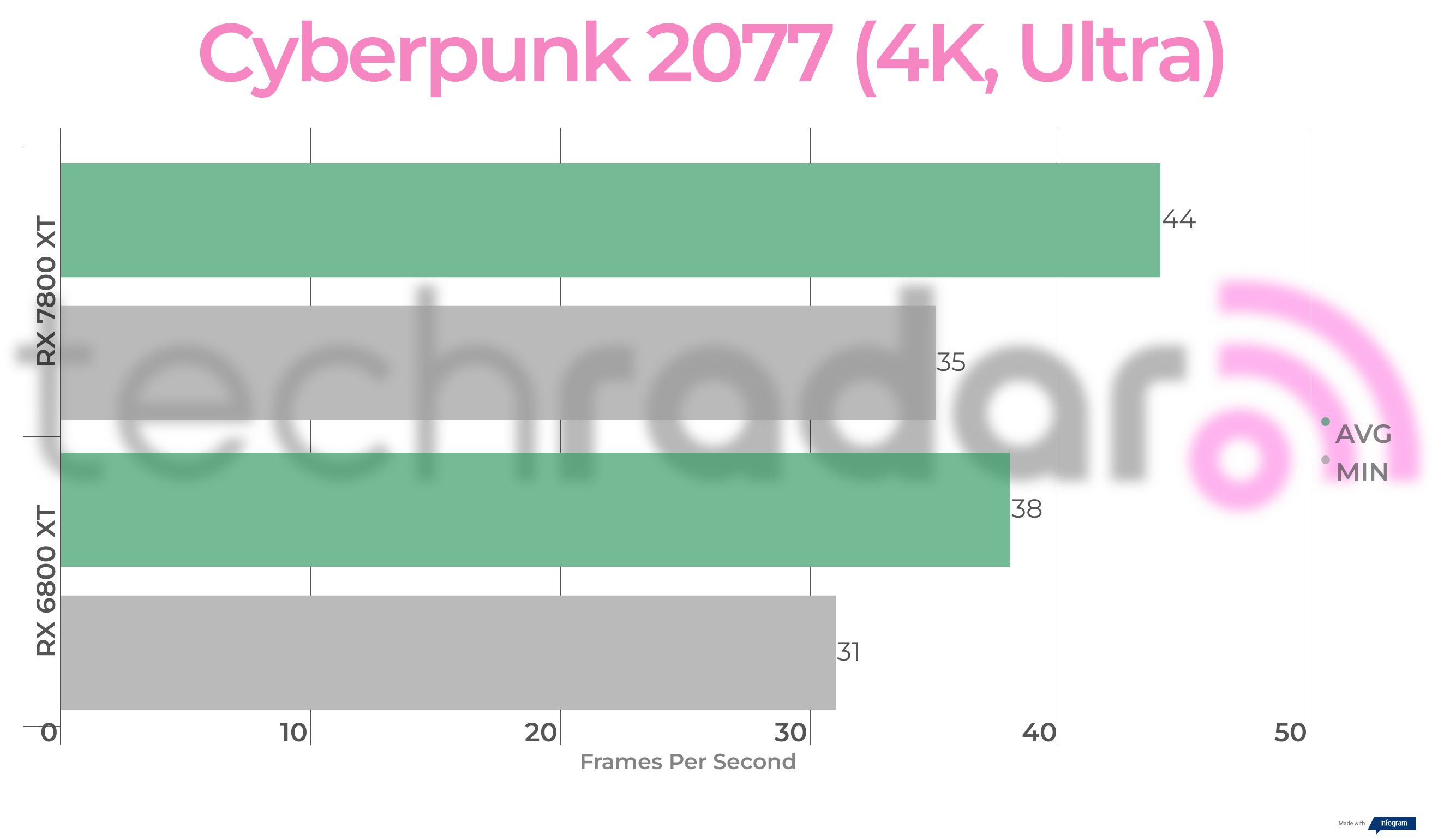
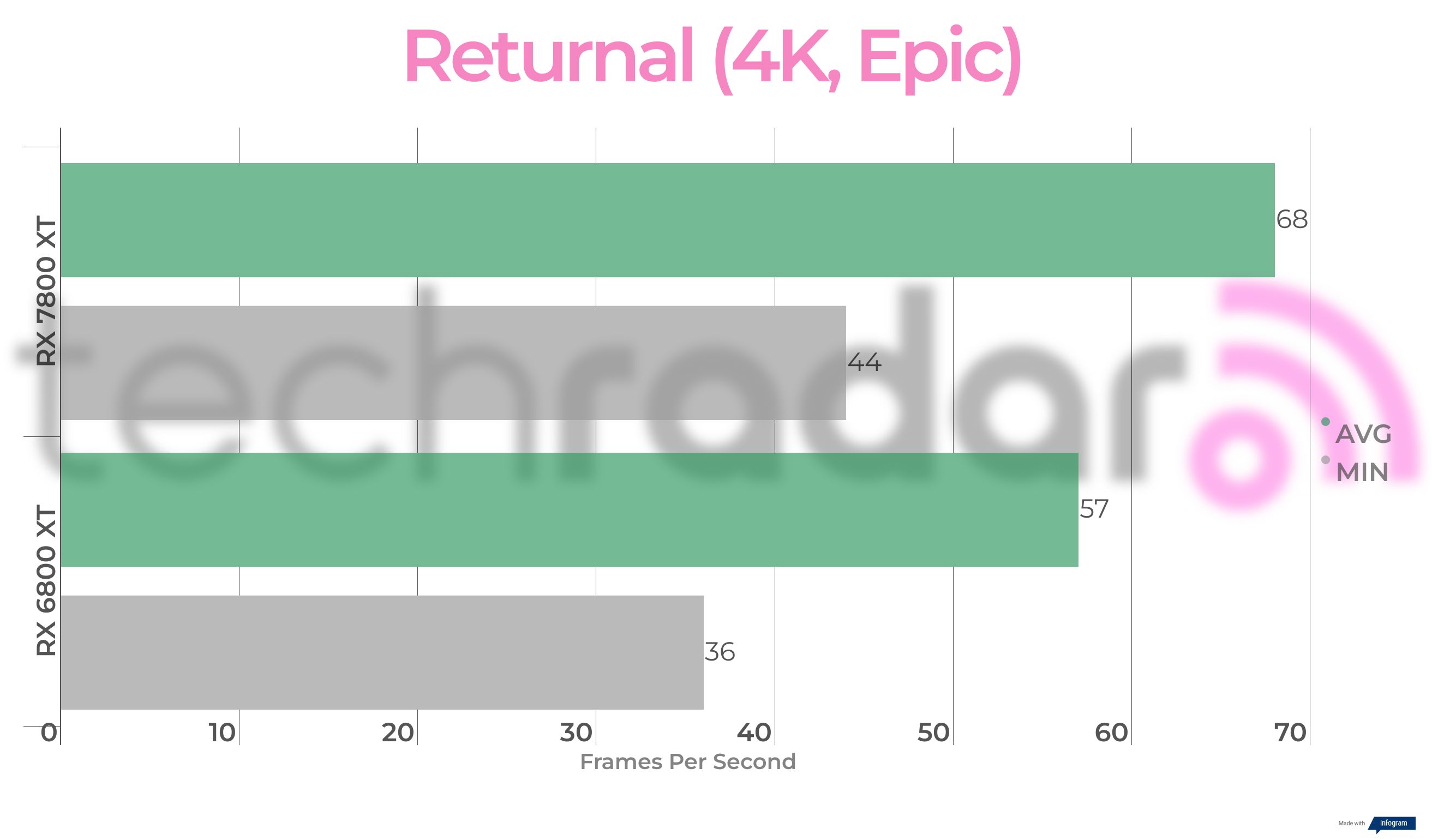
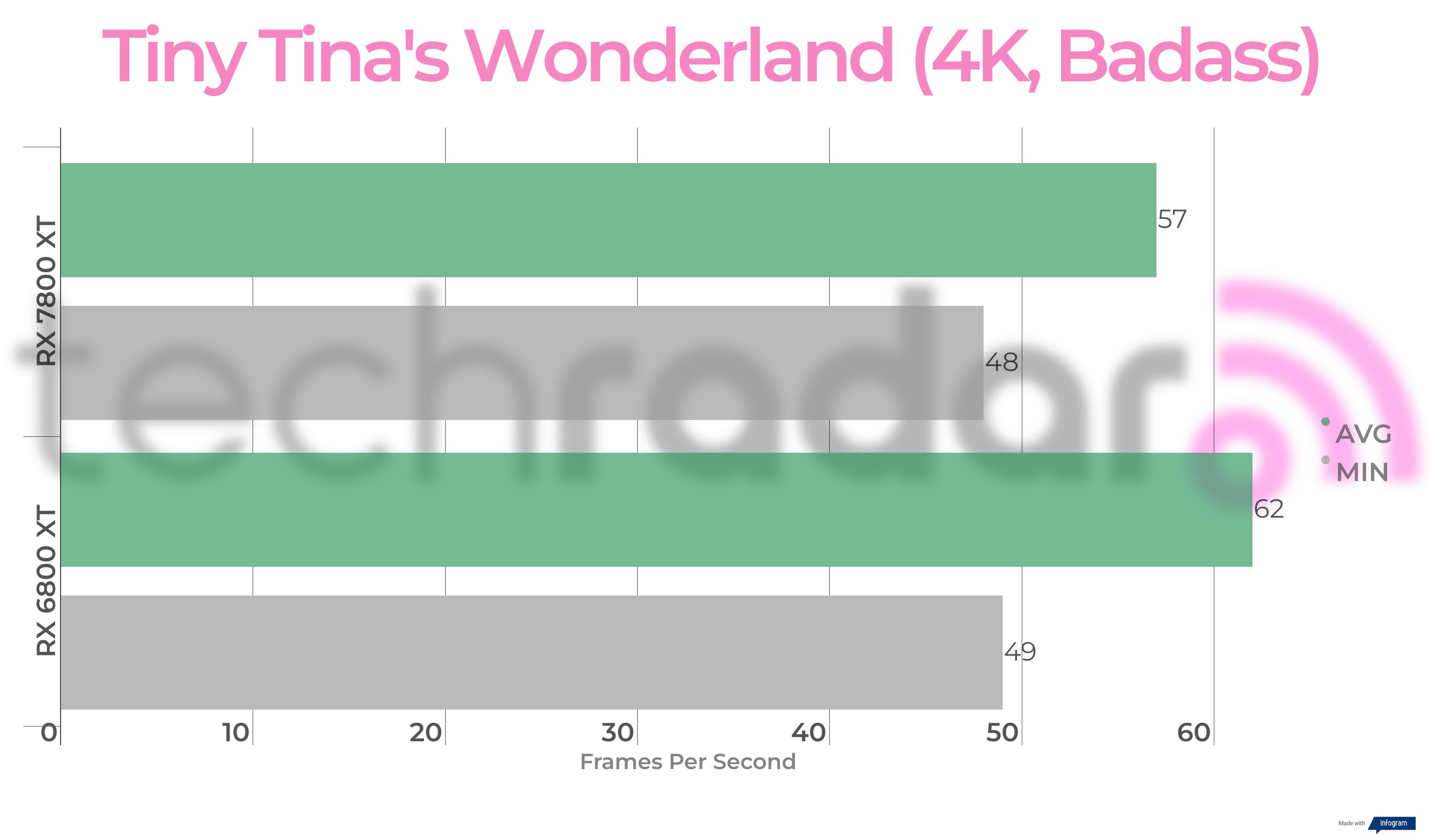
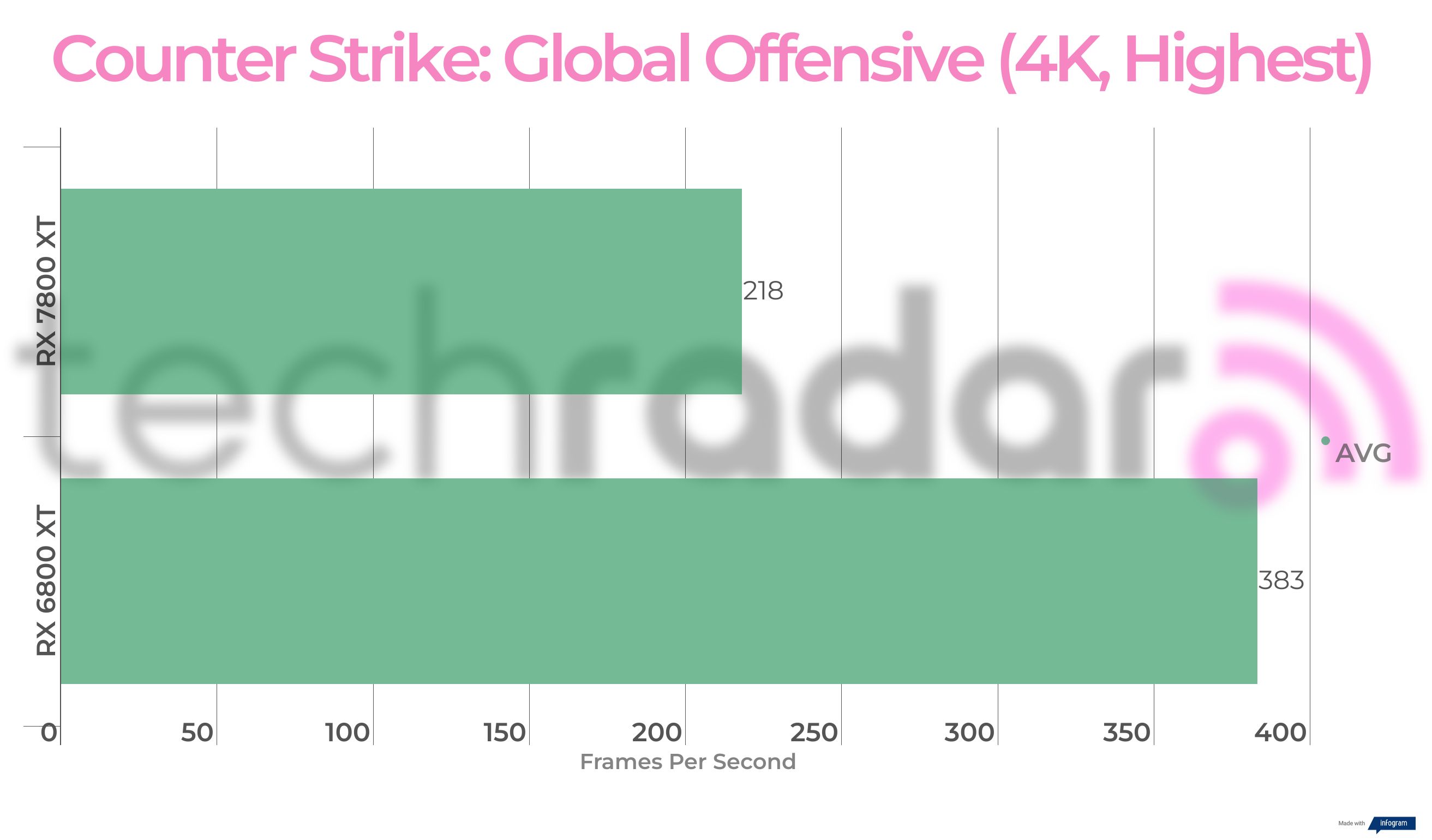
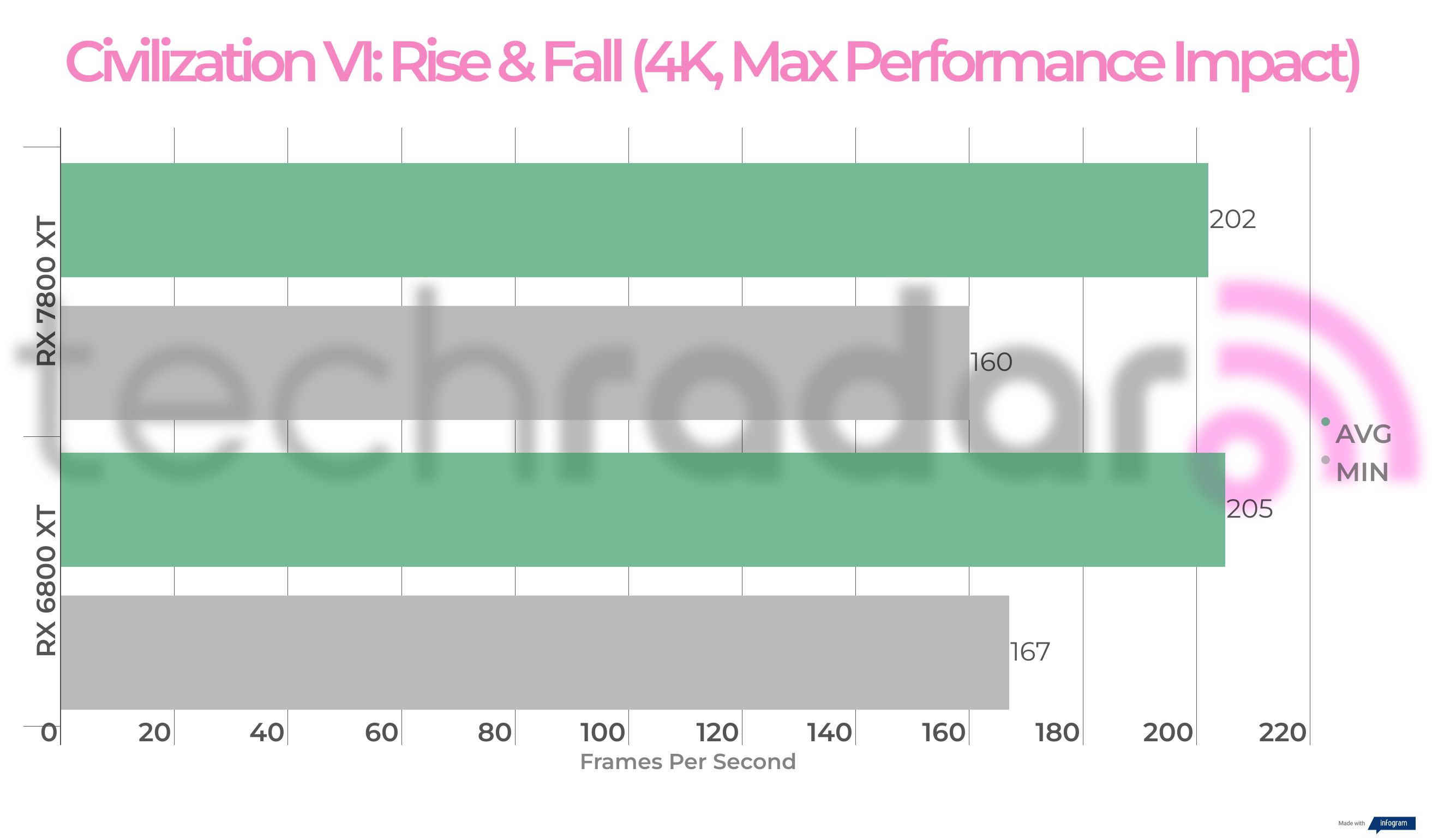
When it came to gaming though, the RX 7800 XT did at least manage to consistently outperform the RX 6800 XT, especially when ray tracing was factored in. When playing without ray tracing, the RX 7800 XT only manages to get about 4% better frame rates than the RX 6800 XT, which really wouldn't even qualify it to be called the RX 6850 XT, honestly.
Tossing in FSR 2 does help widen this gap, however, with the RX 7800 XT managing to get about 19% performance on average over the RX 6800 XT when FSR 2 is set to balanced.
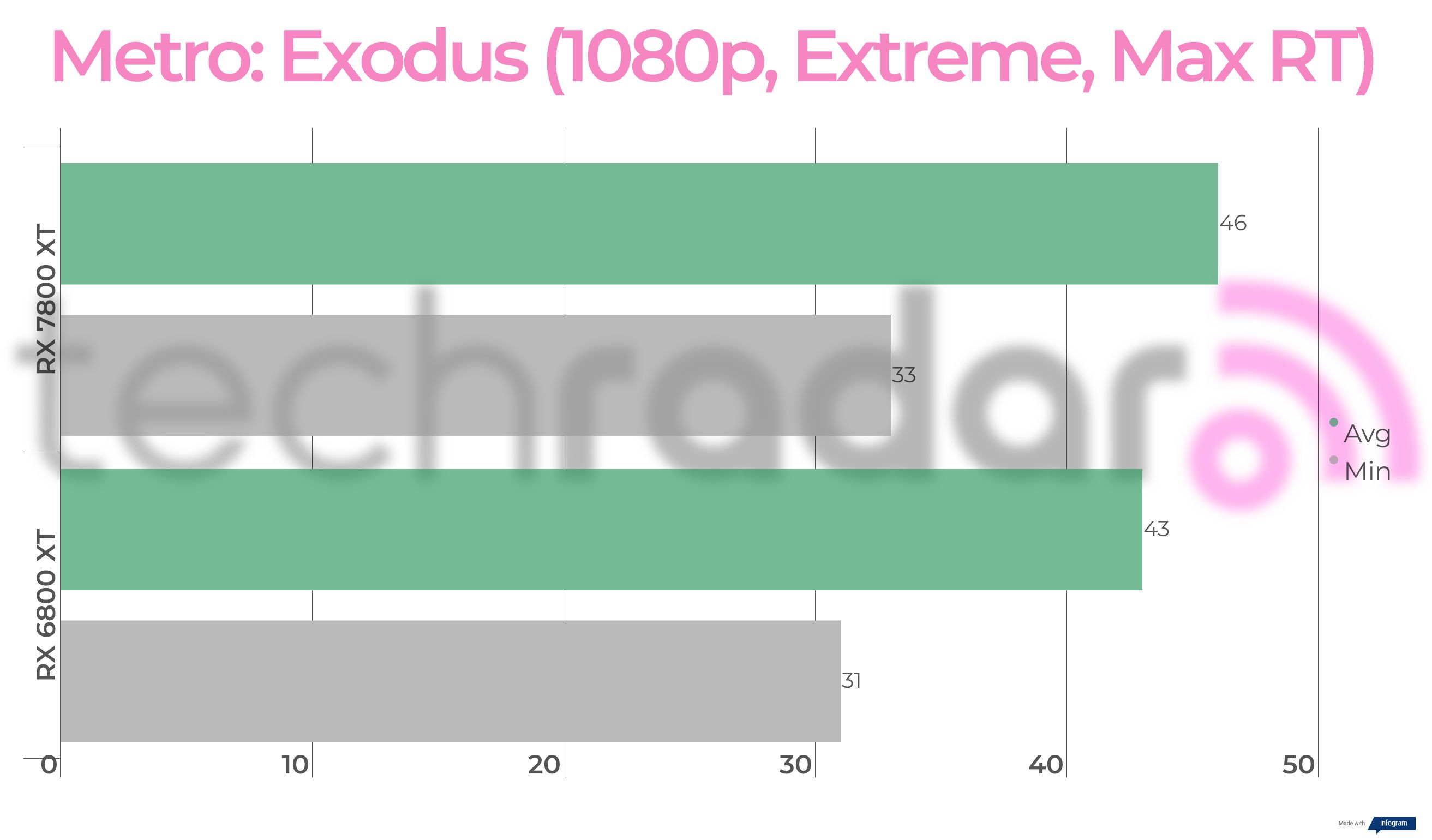
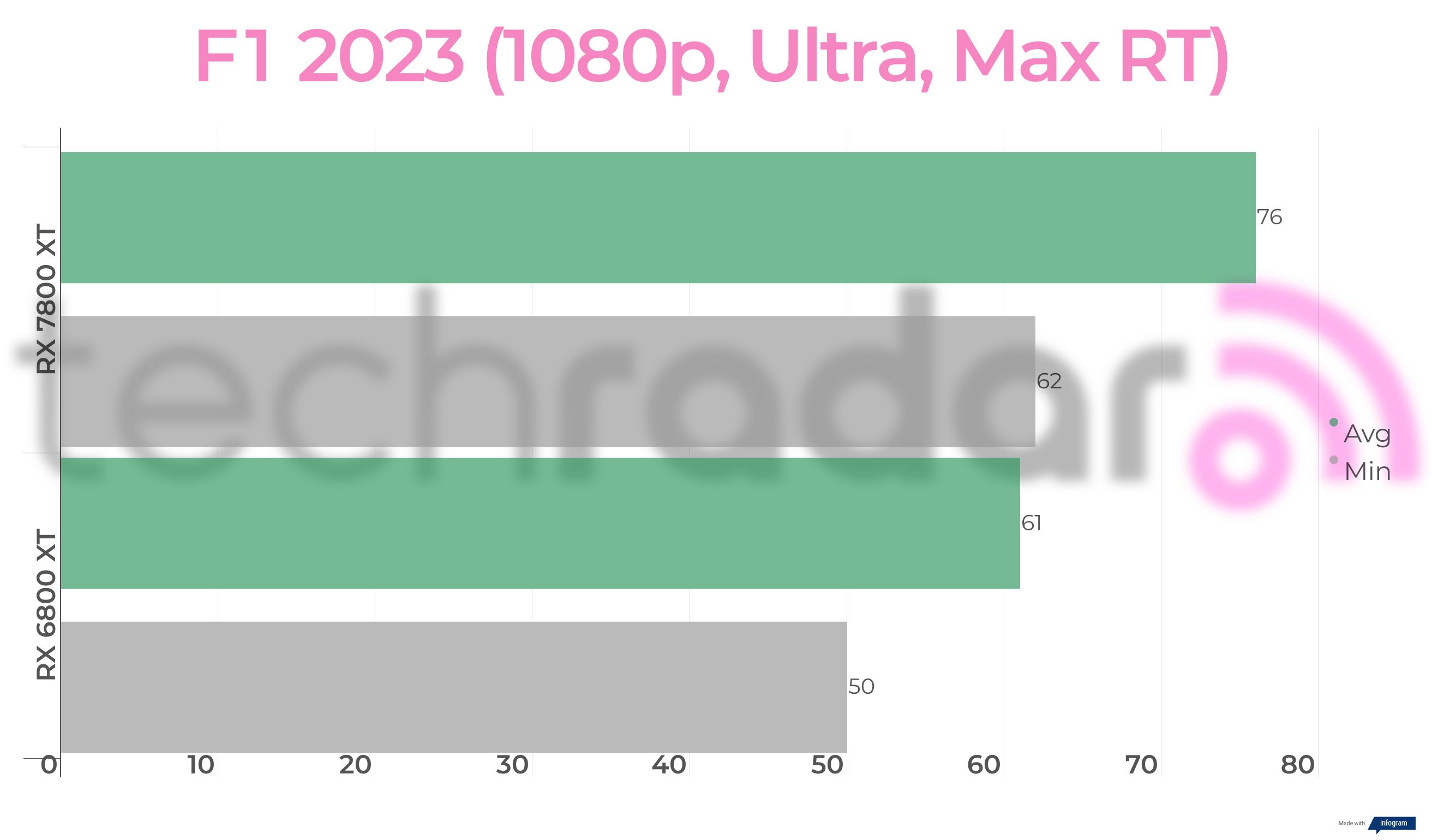
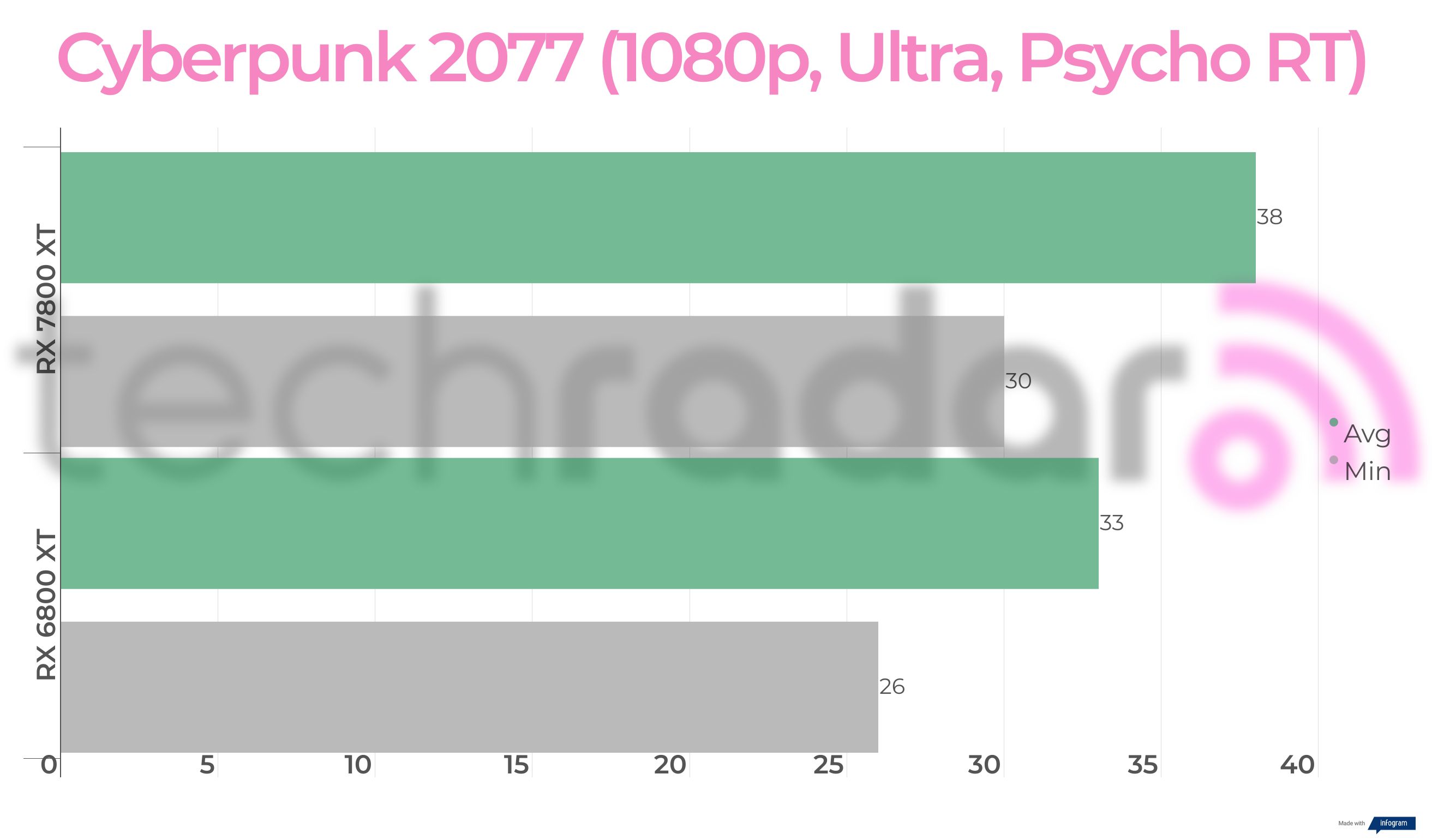
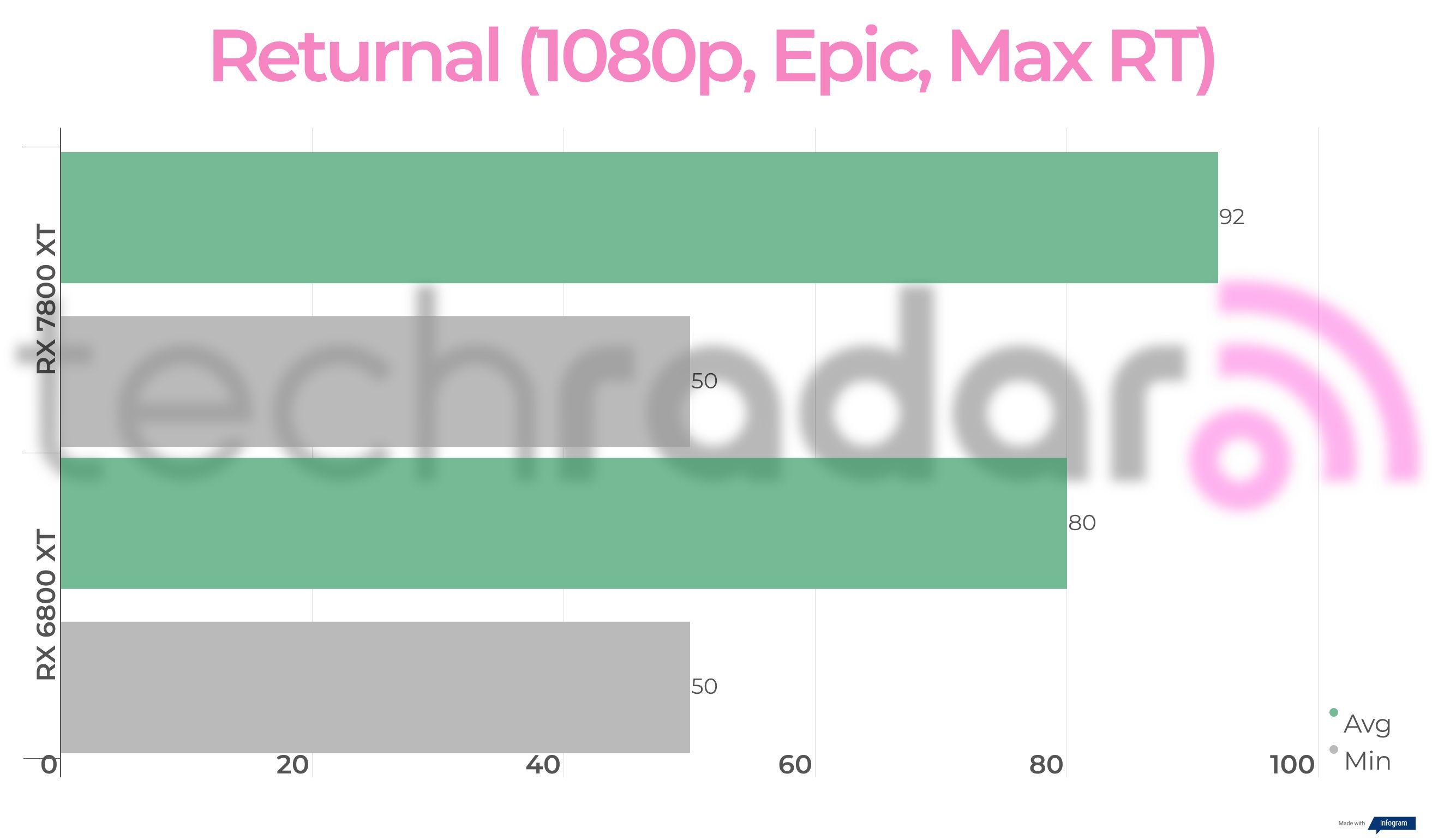
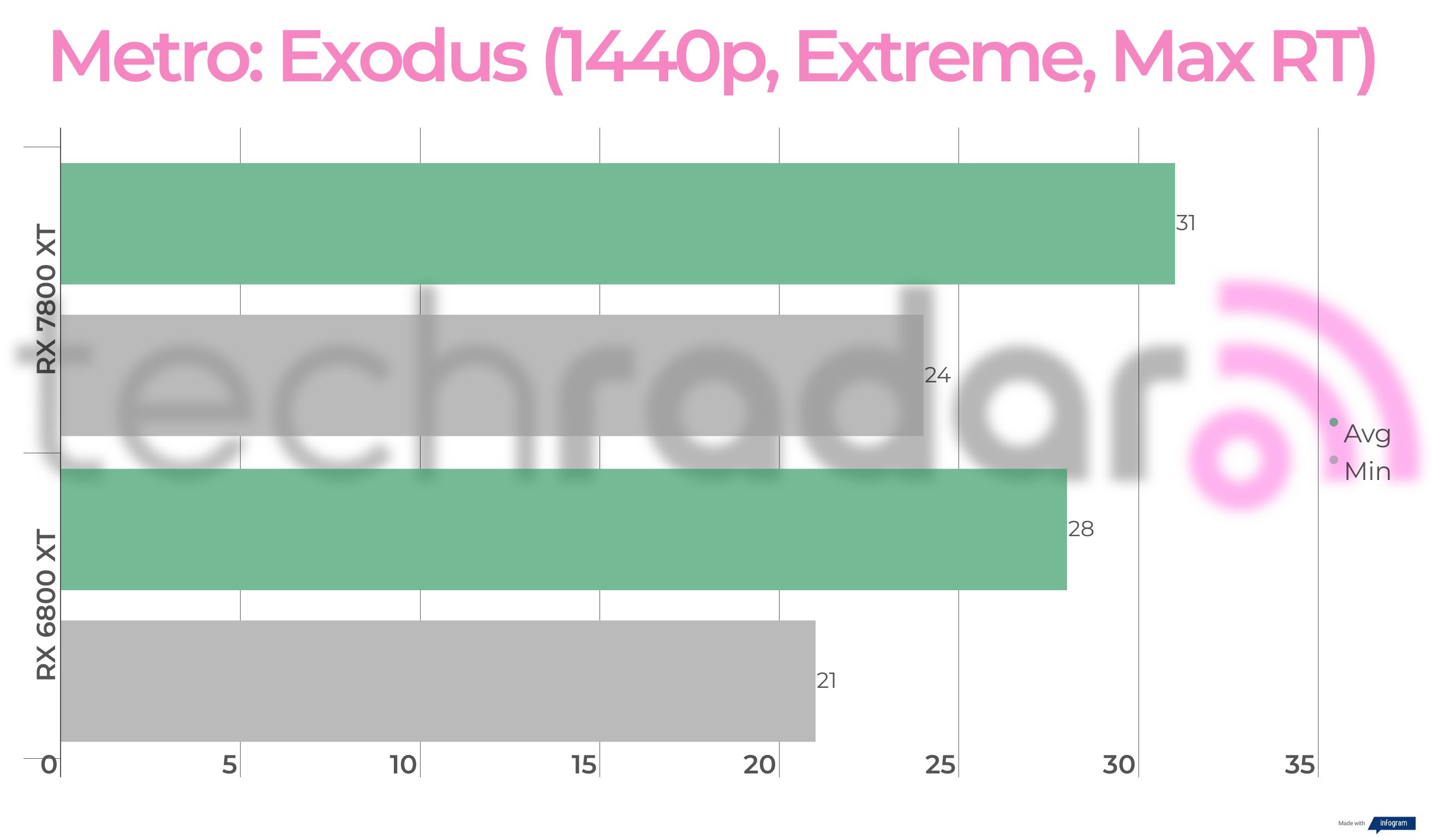
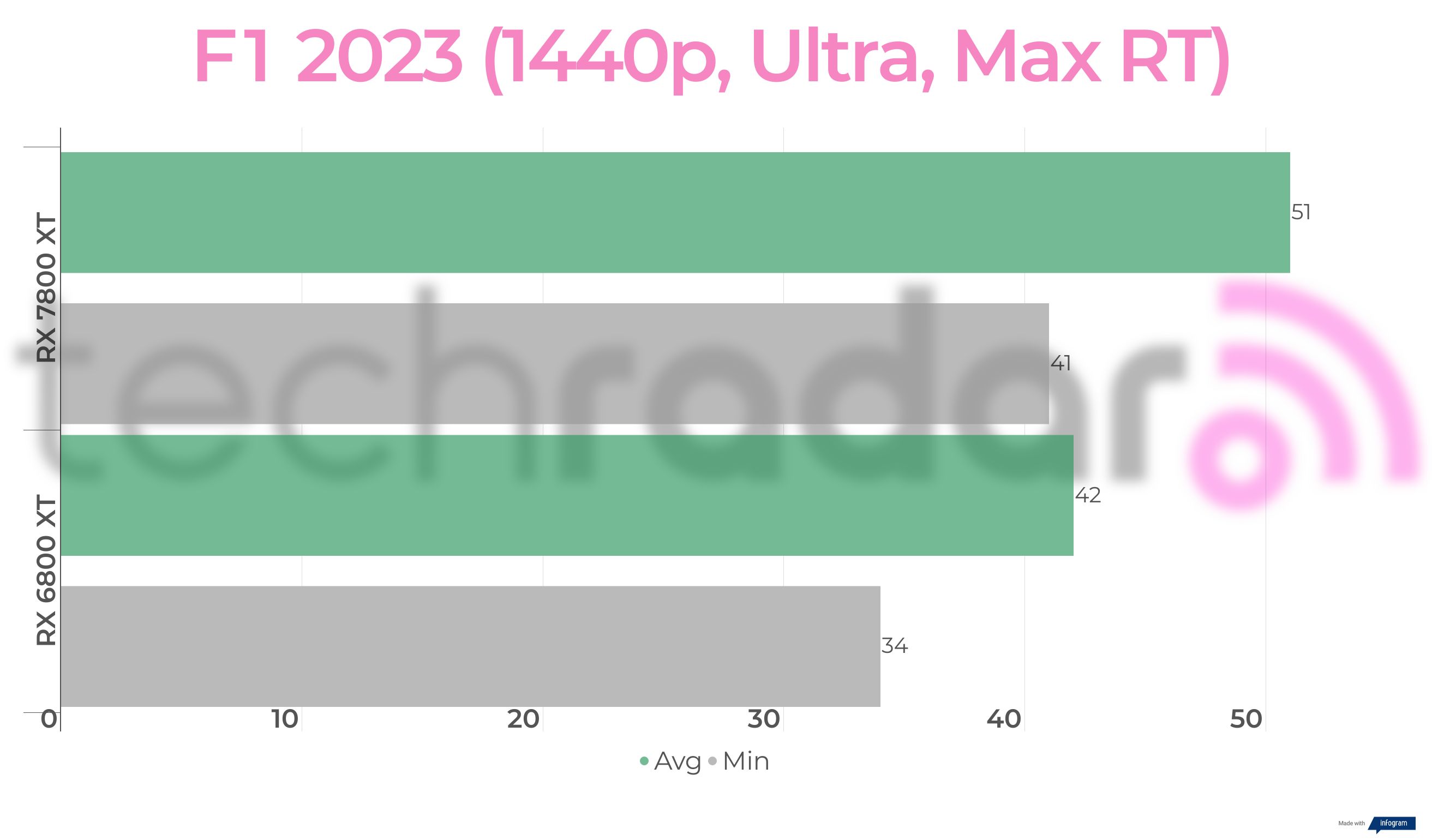
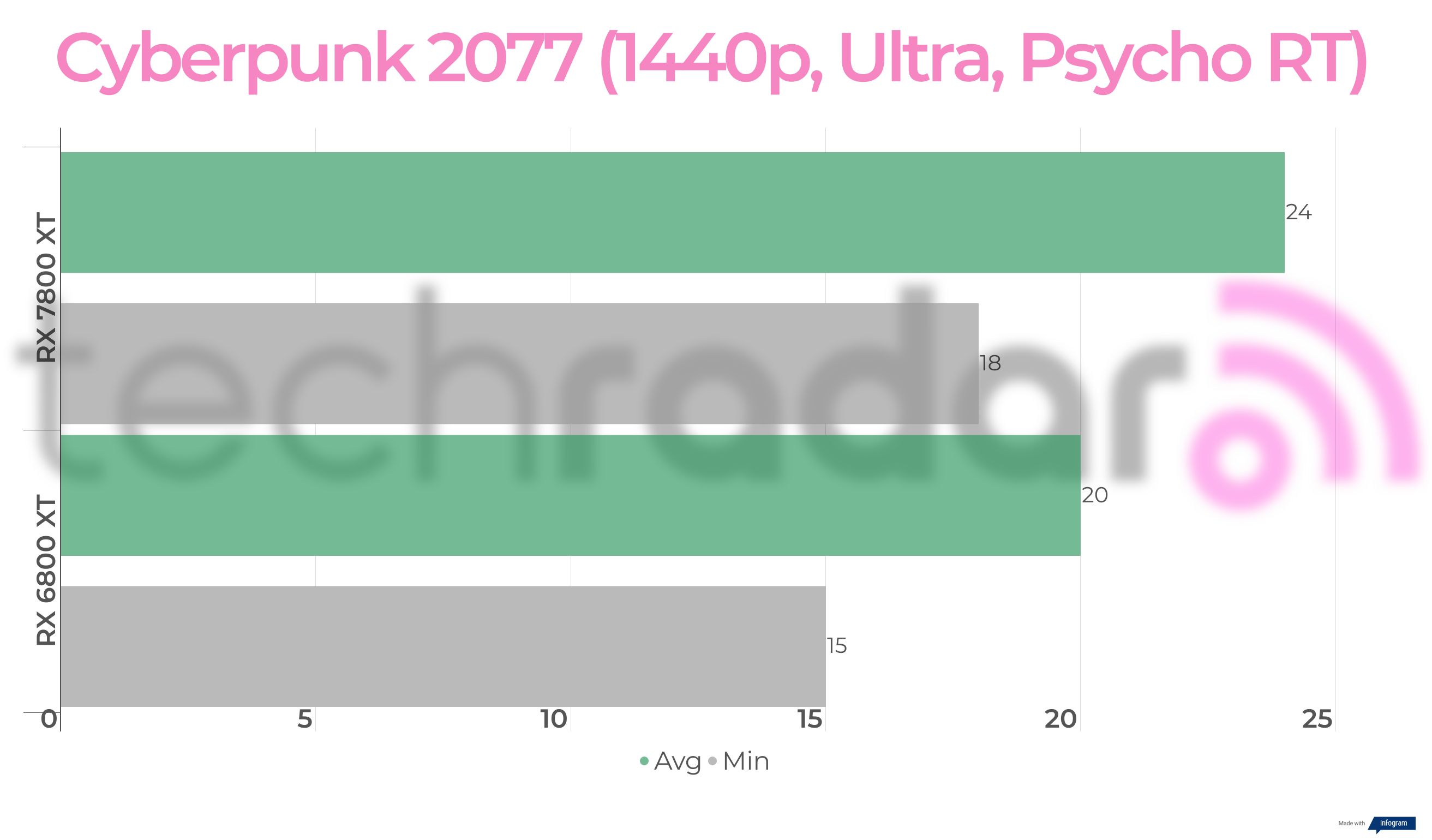
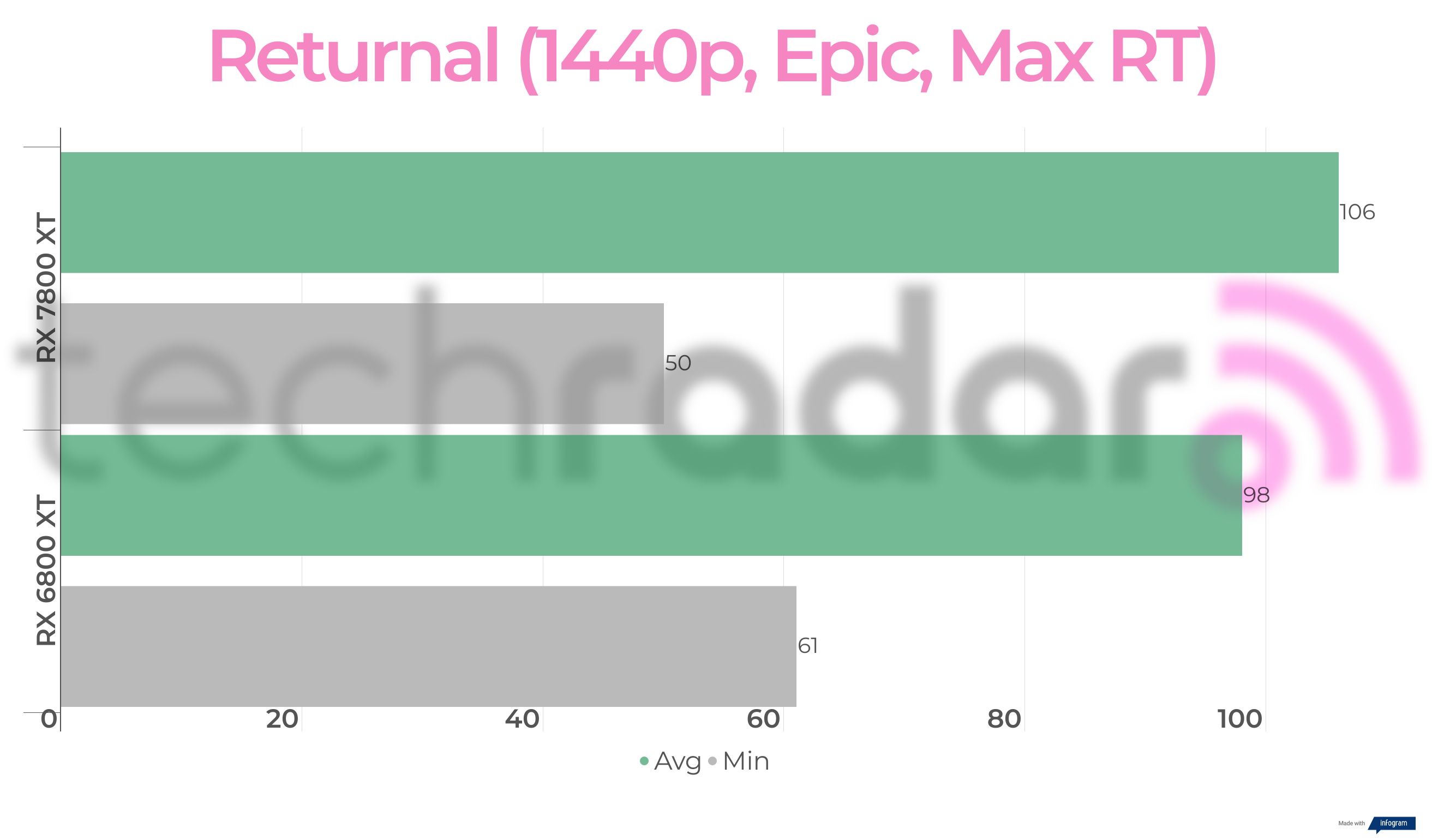
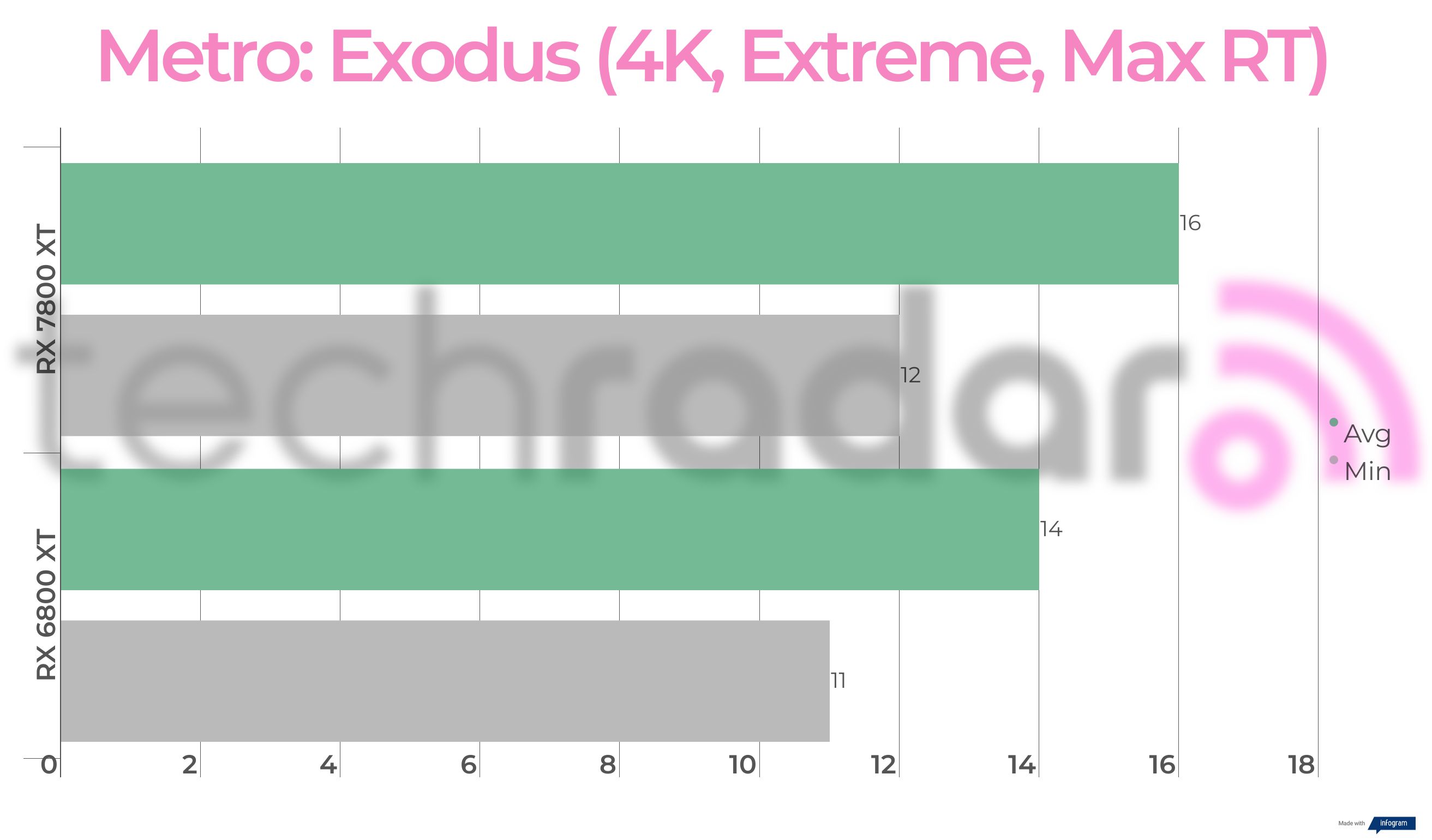
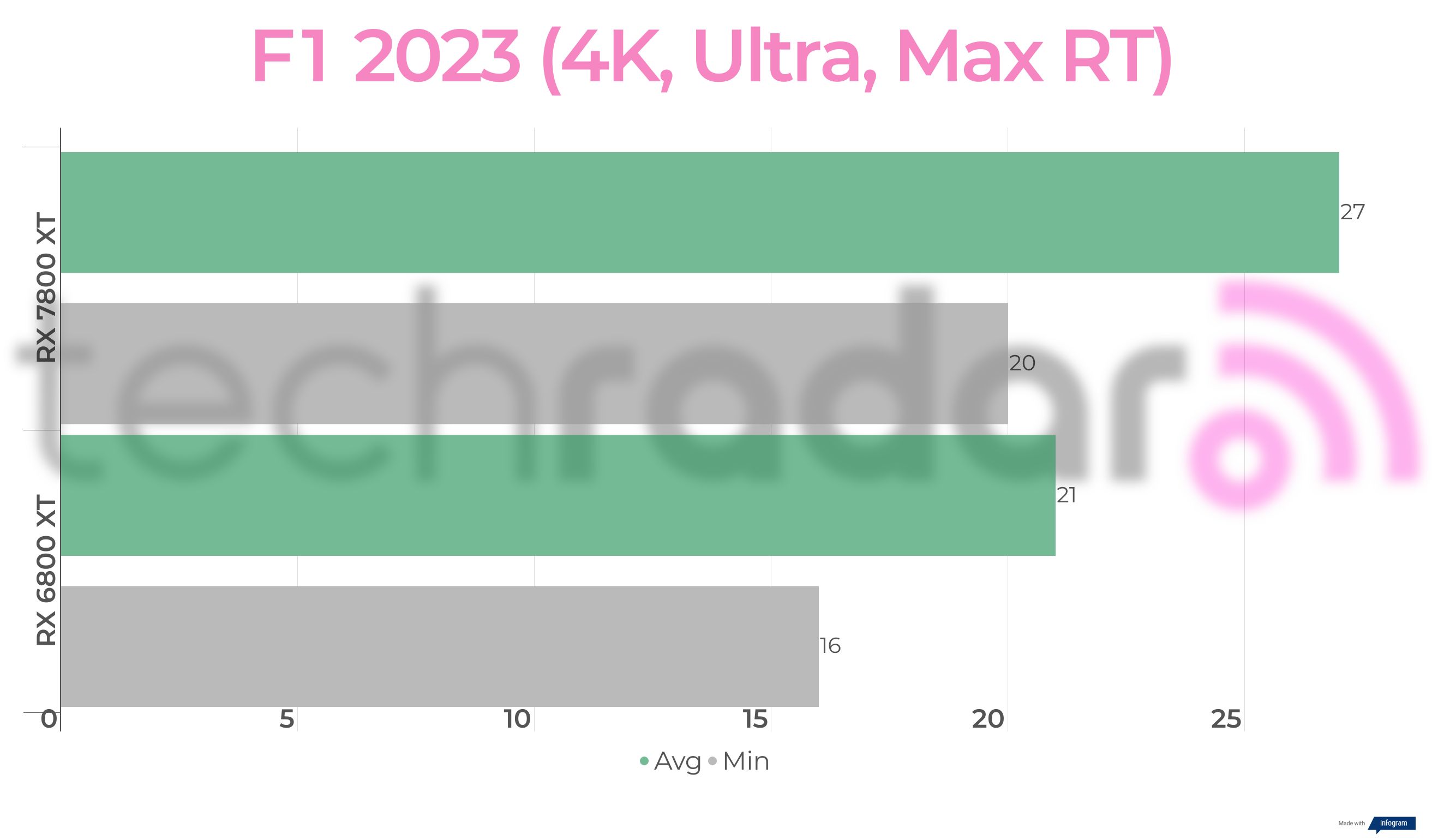
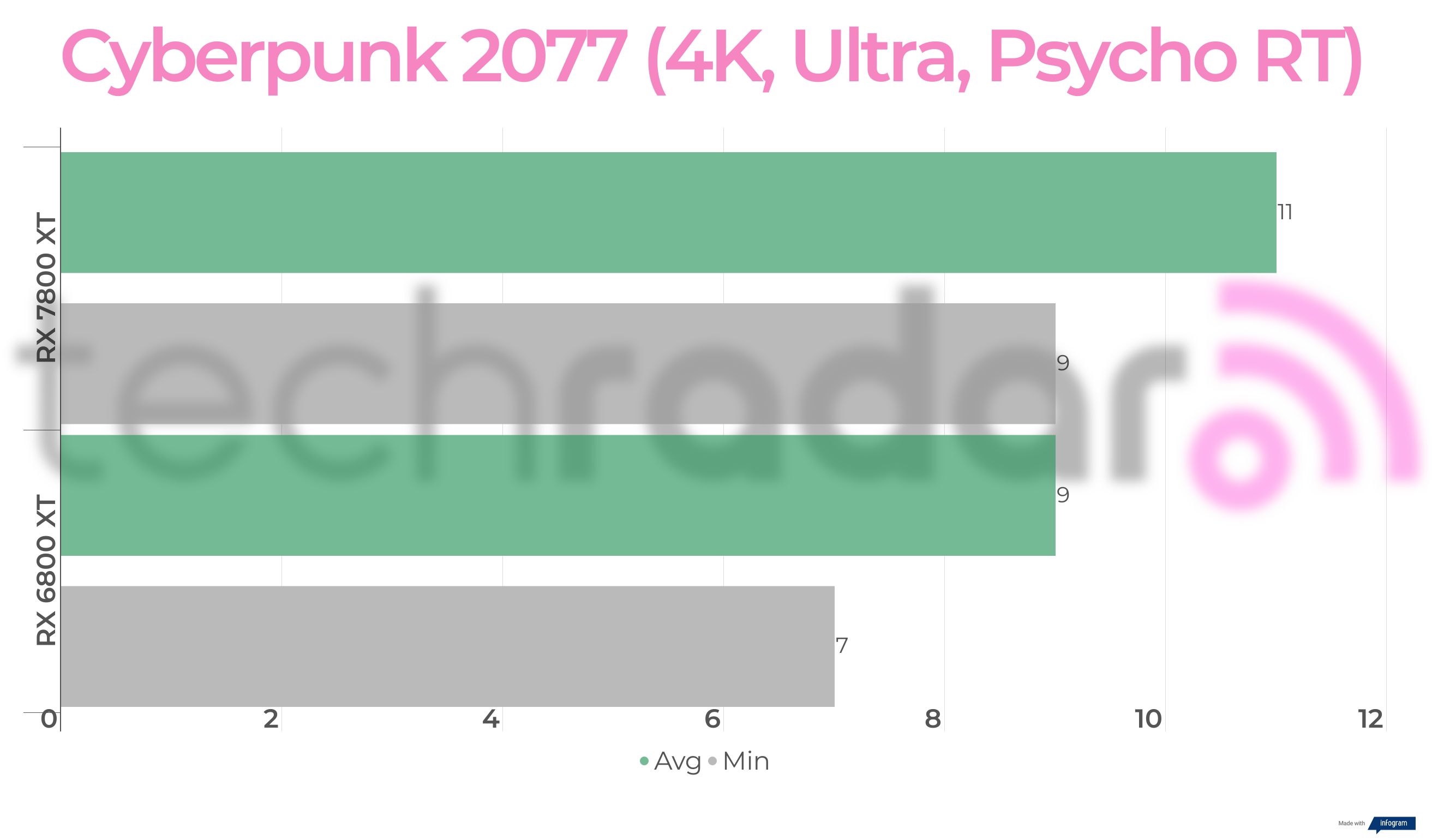
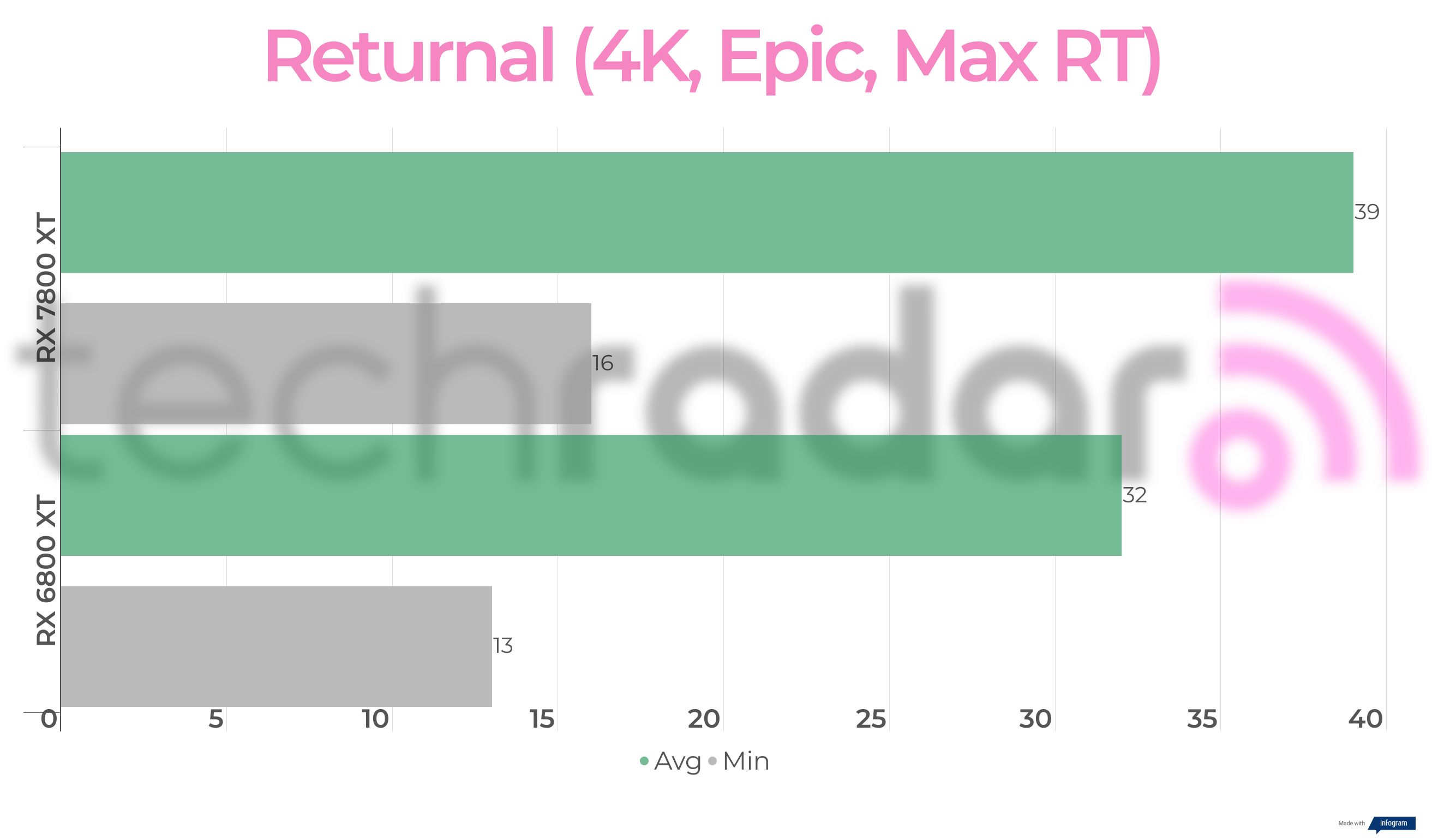
What absolutely wins the day here for the RX 7800 XT though is its improved ray tracing performance, which is about 17% better than its predecessor overall. When FSR 2 balanced upscaling is added to the mix, this narrows a bit to a 14% improvement, but it's still an improvement, and one that you will be able to feel when gaming.
Overall, then, the RX 7800 XT does manage to score a win here, but it shouldn't have been this close.
- Winner: RX 7800 XT
Which one should you buy?
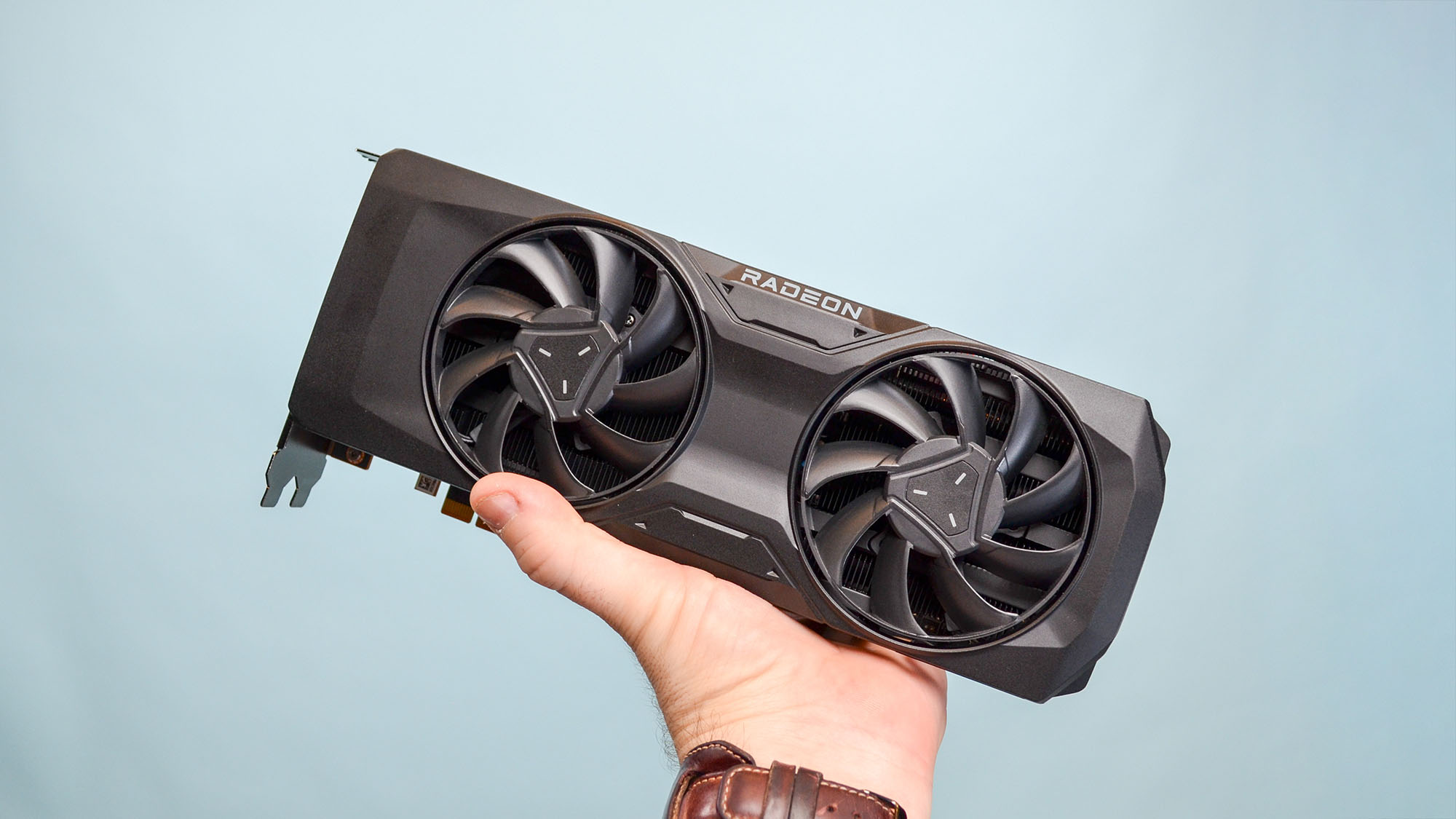
Ultimately, the AMD Radeon RX 7800 XT is the better graphics card than the RX 6800 XT. It'll be easier to find at MSRP, and it offers much better ray tracing and FSR 2 performance, while the RX 6800 XT will ultimately become harder to find as time goes on, and that doesn't necessarily mean it'll be cheaper either.
If you can find the RX 6800 XT at a much lower price though, and you don't care much about ray tracing, than the RX 6800 XT might be the better buy, but with new AI cores, better ray tracing, and a better price, the RX 7800 XT wins this fight by the numbers, though it was harder fought than it needed to be.

John (He/Him) is the Components Editor here at TechRadar and he is also a programmer, gamer, activist, and Brooklyn College alum currently living in Brooklyn, NY.
Named by the CTA as a CES 2020 Media Trailblazer for his science and technology reporting, John specializes in all areas of computer science, including industry news, hardware reviews, PC gaming, as well as general science writing and the social impact of the tech industry.
You can find him online on Bluesky @johnloeffler.bsky.social